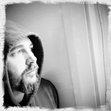William Cook's Blog, page 3
November 6, 2016
Free Fiction! Dead Memories - a short story
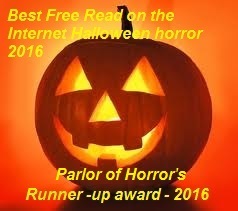
This story recently won 'Runner-Up' in the Parlor of Horror's 2016 short fiction awards and is also part of my collection 'Dreams of Thanatos' - now available to all new subscribers for free - click on the image at the end of this post to download your copy.
Dead Memories 1.
I had a dream on the anniversary of her death. In the dream, I heard her unmistakable voice calling me, then I saw her and she was so real, I could almost touch her again. Everything about her hit me deep in the chest, I sat bolt upright in our big empty bed. My breath gasped, sweat beaded itself on my cold skin. I could still hear her voice in the dark. I rationalized there were only two possible reasons why I could hear such a thing. I was either hallucinating, or what I heard was her ghost whispering in my ear. Then she was gone again.
I lay down and listened, my breath held in my chest, afraid to break the silence. The dawn light bled through the cracks in the blind as I strained my ears, listening. Listening for her sweet voice, playing her words over repeatedly in my weary mind –
‘There’s no turning back.
There’s no turning back now.’
I longed for her touch, the feel of her soft cold skin, her beautiful words carried on her sweet breath. The memories came flooding back – projections of my need. As I began to drift back into sleep, I thought of the way she played me with her brown eyes, teasing me, imparting so much desire . . .
The radio-alarm went off, waking me violently. I checked the time and acknowledged the precious two hours of sleep I just had, turned the screeching alarm off and got out of bed. I passed her photo in the hall on the way to the bathroom. It was the only photo I had of her on display: an enlarged black and white shot of her sitting on a beach in a lotus position, gazing mystically into the sun, long black hair out behind her in the breeze, framed by a silver expanse of ocean in the background. All the other photographs had been secreted in an old suitcase in the attic; some memories were just too painful to look at in such quantity.
I went to work, exhausted. Throughout the day, I thought about the morning’s events. Waking up with her pristine voice whispering in my ear from behind, thinking she was beside me in bed – it was so real. Must be stress, I reasoned with myself. Loneliness does strange things to a man’s mind.
Ghosts don’t exist. Do they?
The day finished quickly and I gladly closed the office door and loosened my tie with a yawn. Outside, the day had turned to night. On the way home I heard a song she used to love on the car radio. I passed the streetlight down the side road where we kissed beneath for the first time, then the church where we married. I stopped at the bottle store before turning into my street and our empty house.
2.
The voice came again. The same words, her voice seemed closer than before, I could almost feel the skin of her soft lips against my ear. I woke with expectation – she wasn’t there, just the dim light cast across the sheets and a hangover from hell, twisting its evil blade between my tired eyes. As the days fell into each other, her disembodied voice seemed to talk louder. The same words –
‘There’s no turning back now.’ ‘There’s no turning back . . .’ adding emphasis that began to take on an ominous air –
‘There’s no turning back . . . now. There’s no turning back, for YOU’ and so on.
My nerves were stretched to capacity. My mind was tumbling over itself, trying to bridge the gap between reason and a slow-turning madness.
The voice was unmistakably hers, the intonation painfully real. Her name was, is, Alicia. We had been together for seven years before she left. We had a passionate relationship to say the least. A veritable love and hate fest, with more making up and breaking up than we both needed. We had met at the office and soon fell for each other. A drunken bout of knee-trembling sex against a photocopier in the stationary room after a work party, heralded the official beginning of our tumultuous relationship.
I didn’t want to think about the inevitable disintegration of our passionate affair, but it eventually happened and that was that. As Alicia said, there was no turning back now. We were young and had aged well together, into our fifth year, we even started talking about marriage and children and then she got a new office manager. I heard the talk among my colleagues. At first, I thought it was mere gossip, as office talk usually is. Then I saw his eyes undress her as he sauntered past her desk across the way. A coy look as she pretended to shuffle papers, her eyes caught in his swagger.
She started working late. I asked around discreetly and no one else knew of any overtime available. Then she ‘transferred’ to another floor, promoted as she put it. The evenings became a waiting game. I tried to impress with the usual chattels of love – the flowers, gourmet meals, expensive perfume. In short, I tried to purchase her affection as I had exhausted all other means of reconciliation. When she did arrive home, she was always freshly showered and well mannered, courteous almost. A peck on the cheek that made Grandmother’s kisses seem like incestuous advances. Her back turned toward me perpetually. A ‘not tonight’ was the standard response to my romantic overtures, every night.
Good old Mr Forgiving tried to get on with things, forget her indiscretion and lies and pretend that she still loved me. I knew she didn’t love me at all – not even a fraction of desire was left in her cold heart. I started to think things – what could I do, how could I get her back? The migraines kicked in and I started to drink heavily. It seemed to block reality out, for a while, and then she didn’t come home one night. But that was over a year ago; that was then, this is now.
3.
Things started slipping. I called in sick three times in one week. When she spoke in my ear, no longer whispered now, in those frenetic waking hours – I started ‘feeling’ the words. After two goddamn weeks of visual and auditory apparitions I started feeling her. I felt her tucked against me at night, relishing each second, stuck between the ecstasy of the moment and agony of the inevitable realization that she wasn’t actually there. Her full tanned breasts against my back, soft lips brushing my shoulder, hands soft so soft like silk caressing. Supplicating my disbelief. and her photo – I can’t explain it, but she seemed to move within, animated, changing pose each morning – one day staring at the sun, black and white – next, a different tilt of the head, her hand rested on her leg just so, next . . . and then she was there. Not quite, but I could see her. Some copper coils of her hair on the pillow next to me, a fleeting glimpse of a smooth-brown shoulder. Then she’d fade away again.
The anticipation drove me delirious – I lost my mind, my heart pumped desire and love to every cell. Whatever she was, ghost or hallucination, I hungered for each second – a panacea for the sad soul. If her memory was just an indentation in the bed where she slept, I could’ve lived with her this way if it weren’t for the words – ‘There is no turning back for her NOW’ screaming in my brain, like a loudspeaker next to my ear, almost painful.
I tried to shut it out to no avail. The migraines increased, nausea, bursts of white spots before my black ringed eyes. I couldn’t shave, the sound of the razor sent blasts of pain ripping through my spine to brain. I took a month’s leave from the office – they gladly gave it to me – “You need a break Harry. You’ve been working too hard lately. Rest up. Take a break. Come back when you’re better, ok?”
Sometimes I’d like to kill those patronizing bastards, just walk in one day in Gucci suit and tie, axe in hand. Walk into the office – “Good morning Miss Secretary, Mr Boss . . . I’ve come to kill you!” Chop chop chop chop chop . . .
Then she was there one morning – “My love, my love. There’s no turning back for us now” she said, completely naked. Her burning eyes glowing hypnotically. Her hair coiling like twisting black snakes, framing her beautiful deathly countenance. I tried to touch her. She reached into me, cupping my pulsing heart in her taloned hand. I could feel it. She withdrew and walked into the bedroom. I followed. She wasn’t there . . .
I couldn’t eat. I looked in the mirror, my gaunt pale unshaven face stared back at me forlornly – eyes blackened, pupils dilated, trembling . . . my heart quivered delicately under my rib-cage, then missed . . . a beat. It felt like it, my heart, was encased in ice. I felt sick to my stomach. Where was she? I decided that it was the sleeping that did it – maybe I was reciting a spell I had lodged deep in my subconscious mind – dreams or something that kept conjuring her up every morning. Invoking the muse at every breath, so to speak.
4.
It had taken exactly one year and twenty-one days after our break-up, or should I say her ‘disappearance,’ before I realized I could not go on without her any longer. I mean she was with me all the time, all day and night now – naked, following me around the house, hovering above me on the ceiling – whispering to me indescribable things, obscenities of the vilest nature. She had started to taunt me, yet my love grew stronger as if with a will of its own – then she started to slap me – ferocious backhanders that rattled my teeth and left droplets of nose blood on the white walls.
Half of me wanted to leave, just run as far away as I could. Pack the car and put a match to the godforsaken house as I escaped, but the other half – the stronger half, wanted to stay – couldn’t leave. Besides I knew if I tried to escape, I’d look into that rear-view mirror and those black cold eyes would be boring into my soul, her white forearm draped around my neck, her blue lips mouthing the words – “There’s no turning back now . . .”
That day I ordered in a couple of one-liter bottles of gin – I’d discovered booze could block her out for a while. I began to drink sitting with my back against the bedroom wall, watching as she undulated like a snake on the yellow duvet on the bed. Her once tanned now white body arched, her full breasts swelling with her movements, her hand pressed deep between her thighs – pink tongue darting across her full lips. Moaning. I gulped the gin quickly – ten mouthfuls, my jaw clenched and then it was easy. Half a bottle, she began to fade out like bad TV reception. Each drink twitched, erased another part of her lithe form – I couldn’t take any more. I knew I had to be rid of her once and for all. Rid of everything.
5.
I stumbled to my drunken feet, pulling drawers out, cupboards open, photographs letters clothes newspaper clippings onto the floor. I looked over my shoulder, her head and torso moved on the bed. Her arms, legs, pelvis – gone. I stared at what was left of her, tears spilling down my face. She mouthed her silent words again – “There’s no turning back.” Her eyes glazed, hair disintegrating, writhing crumbling like black maggots, her skin peeling into nothing. My head was spinning. I threw everything in the bathtub, all the photographs, letters, clothes, newspaper clippings – fire – I opened the window. Smoke blew out.
I shuffled down the hallway past her photo now completely metamorphosed from the original. She was facing me, arms outstretched like Christ. Her blank eyes pleading. The sun behind her a ball of blazing fire. Wild hair dancing blackly around her gaunt white face. I took the photo and threw it through the bathroom door into the fire with the other memories. I’m sure I heard her scream, but it wasn’t a scream of pain – rather, a triumphantly defiant roar.
I sat down on the toilet next to the burning bathtub and put my head in my hands. Flames ran up the plastic shower curtain dropping molten lumps of fire like napalm on the linoleum. Flames licked the walls and the black smoke billowed from the bath – I saw her again, I couldn’t hear anything except the roar and burn of the blazing fire – the smoke melded together, transformed into her unmistakable snake-like coils of hair twisting and swirling, reaching for my gasping throat. Long black fingers of smoke in my eyes, in my ears – forcing my mouth open in wrenching breaths, reaching deep into my burning lungs. My heart felt like cracking ice trapped between my rib-bones. The flames burned red and blue but no heat – just intense cold – so cold. I shivered, inhaling my last breath of her love – her fading words hissing in the black smoke, echoing in my dying ears – “There’s no turning back now. There’s no turning back . . .”
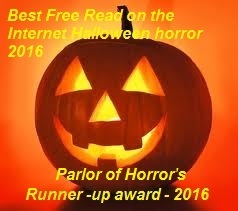
2016 (C) William Cook
*******************************
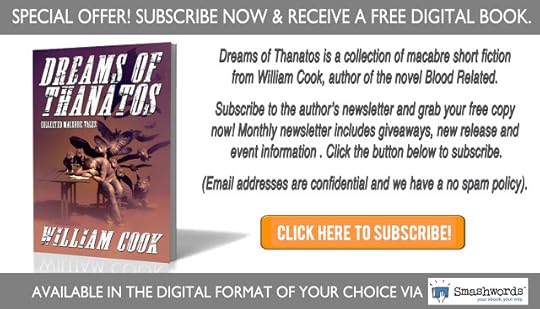
Published on November 06, 2016 01:24
September 24, 2016
Guest Author Interview: Mort Castle
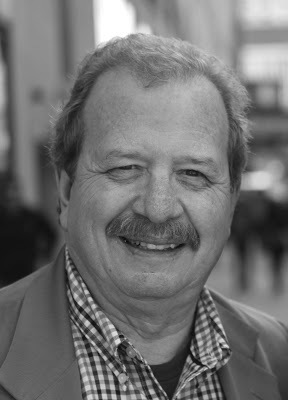
Mort Castle is a veteran of American genre-fiction. Mr Castle is a respected horror author, editor and writing teacher, a prolific short fiction author and a novelist. Among other awards that he has won he is a three-time winner of (and nominated eleven times for) the Bram Stoker Award. Today I present to you a great interview with Mr Castle and it is truly an honour as a fan – my favorite works of his are the collection ‘Moon on the Water’ and his novel ‘The Strangers.’ As his bibliography testifies I have a lot of reading of Mr Castle’s work still in front of me (rubs hands with glee). Please make sure to check out his books and grab some copies off Amazon - you won't be disappointed if you are new to Mr Castle's work (just click on the book cover images below). Here is he, the horror maestro himself, Mr Mort Castle:
Q: How have you managed to maintain your literary career for as long as you have? Do you have any tips for other writers starting off on their careers in terms of long-term strategies to maintain a career as an author?
A: Oh, man, it's perseverance. You don't give up, period. There were some very bleak times, times of serious "career reversals," when I wished I could just pack it in. Was supposed to be editor of Horror, The Illustrated Book of Fears, which would be the country's largest circulation B&W comics horror magazine; that fell through at the last minute when the distributor reneged, saying he had had a moral revelation and was convinced the magazine would encourage mental illness and criminal behavior. Had movies come close and never happen. Book contracts blow up at last minute. Markets disappearing (go take a look at today's convenience stores for the behind the counter men's magazines that used to pay my mortgage!)
But let me rephrase that: I didn't give up. I don't say that's a game plan for everyone. There are people who have given up after little or no success at publication who were probably right to do so. Certainly they are better off than the self-deludeds who slap their borderline literate twaddle onto an epub platform and call themselves "independent author."
Hell, I gave up on my violin playing when I realized that with intense effort, I could someday be mediocre. (Stuck with guitar and I'm not bad!)
Q: After nearly fifty years as a professional writer do you still have ‘eureka moments’ when you think of something fresh and new to write about?
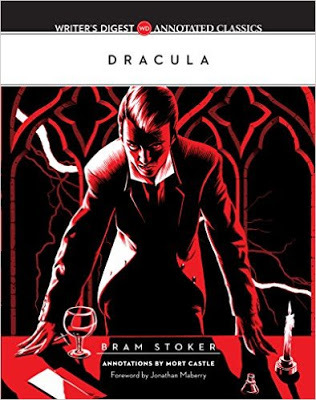
A: If you make that "something that grabs me," then yes, indeed. I don't know that I'd be writing at all if I didn't find / create those concepts that make me say, "I ought to write this." If I weren't doing that, if I were just grinding it out and saw it as "more of the same of the same of the same," I'd have no business writing, using up my remaining hours doing assembly line work and trying to inflict the result on readers who, I hope, have come to expect more of me.
Q: Your writing usually deals with dark themes – is there anything that really scares you and are there things you won’t write about?
A: Yes, and I'll leave it go at that. But I will add ... There are scares and horrors and worse that I had as a younger person that I came to write about—later. Later being when I had acquired the technique to tackle the concepts and had enough distance from them so that going deep inside the bad places didn't leave me a weeping, quivering puddle of nerve endings on the floor in ye olde foetal position.
Q: You also script stories for comic book adaptation – how different is it writing comic books stories as opposed to straight fiction and do you have any tips for aspiring authors who want to break into this market?
A: Comics, man, I love comics. Leaned to read because of Batman and Little Lulu. Comics scripting calls for writing that is totally visual. Without word one on the comics page, someone looking at a good comics story will get a sense of what happens ... what happens next ... what happens now ...
Comics scripting forces me to be a visual writer and that has made me a better writer. Indeed, if I get hung up in a story or a scene from a longer work, I can usually get un-hung by scripting it.
To break into the comics "market," such as it is ... There is no stigma attached to self-publishing in comics. That's because self-publishing has a solid history launching major critical and / or / both commercial successes. So ... do a good "self-" publication and then become part of the comics community. Yes, you really do need to go to conventions.
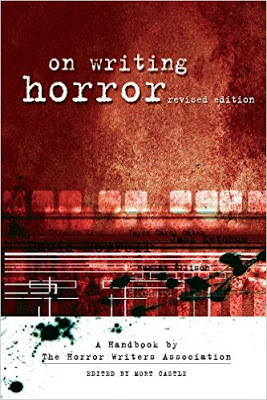
Q: ‘Writing Horror’ has proved to be invaluable resource for my own work, is there a book or resource that you’d recommend that has helped make you a better writer?
A: The book, and we all know it: Strunk and White, The Elements of Style. A wonderful old and out of print book that took published works and showed the writers' drafts to get it right: On Writing by Writers, edited by William West, with fine models provided by Ray Bradbury, Phyllis McGinley, John Updike, John Ciardi, Paul Gallico, Kay Boyle, Robert Penn Warren, Lucien Stryk, Hayden Carruth, Stuart Chase, W. Earl Britton, and Paddy Chayefsky. Stephen King's On Writing: A Memoir of the Craft. Finally, I re-read Hemingway's complete short stories every so often and still learn economy and precision from the Master.
Q: As a teacher, what is the most important piece of advice you could give to the new generation of horror/fantasy authors trying to get a foot on the rung of a career as a writer?
A: I’m going to repeat myself here; I’ve said this a lot in the past few years. (Hey, I don’t know all that much so I get maximum usage out of whatever knowledge I do have!)
So, the advice that has earned me the title of curmudgeon … This is simple: Learn to write. The so-called indie movement, the “free rein” authors (most of them call themselves “free reign” or even “free range”) are boasting of their self-publications. Never has it been so easy for so many to be so self-deluded—and to aid others in becoming no less deluded.
Worry less about “platforms” and “social media” and “emerging technology”. You’ve got to have a product before you can sell it. I cannot believe there’s so much bad stuff out there, but that’s because now we get to see the bad, proudly displayed on websites, in bad electronic magazines edited by editors who can’t edit, featuring stories by people who can’t write, aimed at aspiring bad writers who want to write for bad electronic magazines, and get self-published on Kindle, Swindle, Shnook, Hobo, Yoyo, and Hoohah …
Writing is a craft and a craft can be learned and a craft can be taught. There are good schools with good writers as teachers. There are great workshops like Clarion and Borderlands. There are good editors. There are good publishers. And when you find someone who says, “Yeah, you’ve got the possibility,” then you can learn from that individual or institution.
Of course, you could learn on your own, with extensive reading, plenty of writing, etc. But a mentoring program of some sort makes it easier and quicker. You bet such mentors as the poet Lucien Stryk and that lovely gentleman J. N. Williamson knocked years off this guy’s learning curve.
Q: Alongside your work as a novelist, you are also a prolific exponent of the short story form, can you recommend any specific markets that are essential publishers of this type?
A: I strongly recommend anthologies edited by someone about whom you can say, "Yeah, he knows what he's doing." That cuts down on your marketing decisions right there.
The well known so-called "little magazines" (not an oxymoron) are also a good bet. If you can score with Tin House or Bombay Gin you are in the best TOC company there is.
And you are better off with one story appearing in Ploughshares than three dozen stories in North Jerkly Journal or Beautiful Buds and Bad Begonias, the readership of either not being the length of the table of contents.
And contests. Beginning writers, there are many worthwhile contests. The Writer's Digest annual contests are the real thing—and can lead to all sorts of notice and publication.
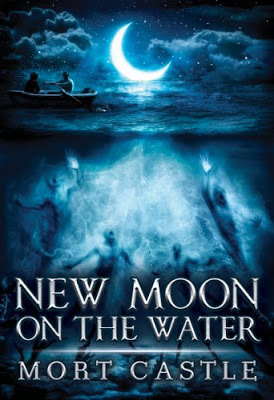
Q: Do you have a favorite author or authors of short fiction and if so, why do you consider their work noteworthy?
A: Hemingway remains the master, for reasons noted above. There are so many fine short fiction writers that I could name dozens who are on my must read list. Dan Chaon, because he has Bradbury's sensitivity to life without being at all imitative. Bonnie Jo Campbell, who richly understands the suchness of things. Alice Hoffman, who is a magician with words. John McNally—and I'm waiting for the moment when he becomes the "Everybody look!" writer he is meant to be. Lee Martin, for his Midwestern heart and common sense. Ron Hansen ... for proving that you don't have to preach to write moral fiction and that "thoughtful Christian" does not mean secular humanism disguised with a cross (and please, Ron, you have to write more short stories). Julia Keller—maybe this era's Shirley Jackson, if she weren't so busy writing great mystery novels and winning Pulitzers for non-fiction.
And I'm just getting started.
Q: As a horror author how do you view the state of contemporary horror fiction and do you think that the genre still has room for new writers and original ideas/stories?
A: The good is great: Newer writers like Sarah Langan and Livia LLewellyn, the old(er) masters like Dan Simmons, Straub, and of course, King. Not a one of 'em content to turn out potboilers. More than a few others.
The middle—pretty bad, most of them not able to meet even the minimum competency tests for midlist paperback originals of the 70s and 80s. A few notable exceptions who will rise.
The bad—too bad to be true. Swamping Kindle, Shnook, Createacrap, etc. Possibly reading each other, but that's about it.
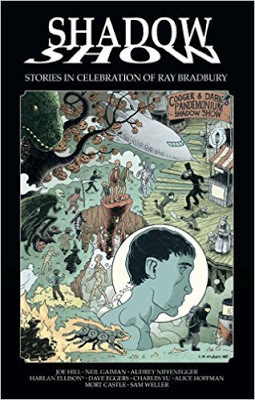
Q: Many of the your stories place characters in deep existential crises, does any one philosophy inform your work and do you think that horror offers a cathartic experience to the reader?
A: My philosophy? Expressed by the poet William Wantling in the one novel he wrote, a book called Young and Tender: "Let them know we were here and here hard, without believing in the Lie or adding to it."
Cathartic? Nah. Illuminating, maybe. Reassuring, maybe, in that it reminds you we're all gonna have to do some hard time. But cathartic? If that were so, I'd have been thoroughly cathed and never would have kept on writing horror. I could have written about lemonade and happy bunnies.
Q: As a writer how important is physical fitness to you and do you have a regime that keeps you fit? I.e. Do you write standing up or sitting down and do you do exercise before/after writing to prevent health issues common to a lot of writers (e.g. weight issues, heart problems, stress etc)?
A: Ah, quit smoking years ago. Hardest "health achievement" ever. Physical fitness? Just getting back to it after months of severe tendonitis made walking dreadful. Way overweight, but I like my stuffed pizza and pasta and ice cream.
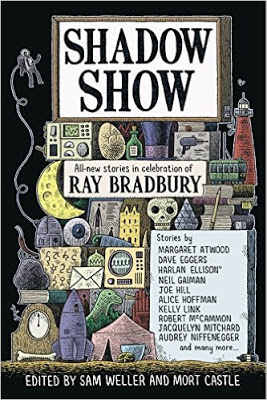
Q: Thank you for agreeing to be interviewed, it is truly an honor. Do you have any parting words you’d like to share about upcoming projects or events?
A: Yeah, I was just recently a winner in the annual Leapfrog Press fiction contest with my story collection Knowing When to Die. This makes me literary as hell and I'm sure I will now be awarded countless zillions in government grants like so many others who have done most of the creative work in writing grant proposals.
Projects? Working on a long comics script for "The Golem," based on the 1920s film, for Graphic Classics, one of the absolute best lines of comics today, published and edited by Tom Pomplun. Lots of most enjoyable research.
Just licensed Argosy magazine for development with my sometimes literary tag team partner Sam Weller. Got big plans, but veddy, veddy hush and hush for now.
And then, with my partners in 4 Maples Productions, working on an anthology television series. We've got an Emmy winner attached and we've partnered with a well known production firm ... More news as I (hope to) have it.
Parting words? From the best rock n roll band ever: Creedence Clearwater Revival: Keep on Chooglin'!
Mort Castle's Links
Amazon Page
Facebook Page
Thank you for reading this interview. If you haven't already, please take a moment to subscribe to this website (here is the link:free instant book download for all new subscribers) so that you can catch all the latest news and interviews. Until next time - stay tuned, thanks for reading and please share this post with your pals.
*Author photo credit: Michelle Pretorious.
Published on September 24, 2016 20:01
September 12, 2016
Guest Author Interview: Brian Evenson
Today it is my distinct pleasure to bring you this recent interview I did with the talented author, Brian Evenson. I recently read his early collection Fugue State and thought it a fantastic book. Here’s my review, which doesn’t really do it justice – I encourage you to read this and any of Brian’s other superb books (click on the book cover images below to be taken direct to the Amazon book page):
“Brian Evenson's Fugue State is a very surrealistic, slip-stream kind of collection soaked with dark themes and nightmarish allegories that make the reader think! A bit of a rarity these days. I especially liked the way the stories encouraged a second reading. Stand-outs for me were 'In the Greenhouse', 'Life Without Father', 'Fugue State' and 'The Adjudicator.' Will definitely be reading more from this fine author.”
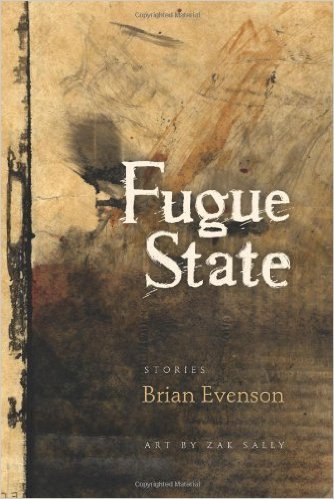
Without further ado, here is my interview with Brian.
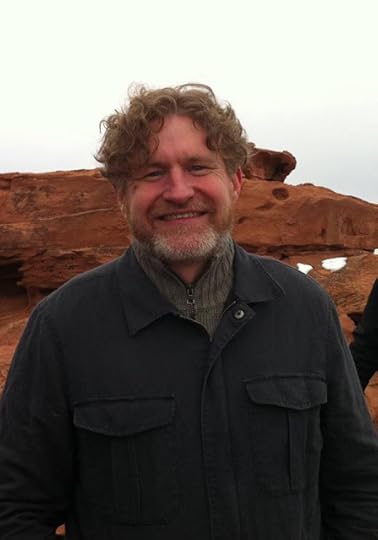
BRIAN EVENSON is the author of a dozen books of fiction, most recently the story collection A Collapse of Horses (Coffee House Press, 2016) and the novella The Warren (Tor.com, 2016). His collection Windeye (Coffee House Press 2012) and novel Immobility (Tor 2012) were both finalists for a Shirley Jackson Award. His novel Last Days won the American Library Association's award for Best Horror Novel of 2009. The Open Curtain (Coffee House Press, 2006) was a finalist for an Edgar Award and an International Horror Guild Award. Other books include The Wavering Knife (which won the IHG Award for best story collection), Dark Property, and Altmann's Tongue. He is the recipient of three O. Henry Prizes as well as an NEA fellowship. His work has been translated into French, Greek, Italian, Spanish, Japanese and Slovenian. He lives and works in California, and teaches at CalArts.
Q: You have recently been in Transylvania teaching at the Horror Writer’s Workshop, did you get an opportunity to explore the countryside and were you inspired by your experience?
A: We did. The Horror Writer’s Workshop was held just outside of the town that houses Bran Castle, the basis for Dracula’s castle in Bram Stoker’s Dracula, so I spent some time there, also explored some of the nearby towns and medieval villages and fortresses, places like Sighisoara and Brasov, took my son to a decaying Communist playground complete with scary cartoon figures, passed through a gypsy village in which on a Sunday morning everyone was carrying a broom, spent time in the forest, etc. It’s an amazing place, and it reminded me a lot of what parts of Europe used to be like 30 or 35 years ago, back when I visited as a kid. I do think I got a lot out of it and that it’ll figure in my writing in various ways.
Q: What of your childhood experiences determined your future works of fiction in thematic terms? I.e. How/what aspects of your childhood influenced your love of genre, reading and, ultimately, writing?
A: My parents were both big readers, and I think that rubbed off on me. They read a lot of mysteries in particular, but literature as well, and some science fiction (Arthur C. Clarke, Robert Heinlein, C. S. Lewis). I think that, the pleasure they seemed to get out of fiction, was more important to me as a developing reader than anything else. When I was young, I read mostly genre, most SF (Wolfe, Moorcock, McCaffery, etc.) but when I was in my mid-teens my father introduced me to Kafka and my mother introduced me to Poe. That ended up opening a whole new world to me, made me realize that literature was maybe something different than what I’d been led to believe it was, that it didn’t have to be boring and could be very odd. For a long time after that, a decade or more, but then I suddenly started finding it again and began remembering what I liked about it. And I also realized at that time that a lot of what I was trying to do with my own writing was to figure out a way to combine literature and genre.
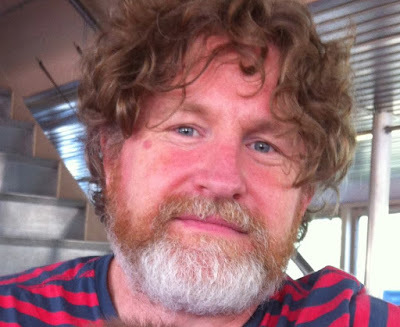
Q: Many of your stories invoke a sense of unease and disquiet in terms of both the effect of characterization and imagery, is this a stylistic device that you employ to psychologically and imaginatively impact upon the reader, or do you think that it is more of an organic signatory aspect of your work?
A: I see it as organic, as something that I admire about the fiction I read that I liked the most and that became part of my literary DNA. I like work that makes me uneasy as a reader, that throws me off balance, and I think from the beginning of starting to write I was trying to understand how those stories worked and how to do it myself. But I also see it as operating more instinctively than being something I set out to do with a specific set of tools and, honestly, my stories that work the best manage to accomplish the unsettlement in a way that I can’t quite replicate or can’t quite understand why it does work. I love those moments in my fiction: the moments that really work but that I can’t explain to myself. At this point, it’s organic: I don’t think about it any more. I only have to think about it when I want a part of a story to not move in that direction...
Q: Your work seems slippery in terms of genre definition, what genre/s do you most feel at home with (writing) and do you have trouble placing your work in your intended market/s?
A: Initially, back in the 90s, I did have some trouble—people had a hard time deciding what to do with me. When I was first publishing, one of the first reviews my first book got at a large newspaper suggested that I was talented and I’d be worth reading once I got over the dark stuff and started writing “normal” stories. But as time has gone on most have decided they’re okay with me being a little slippery, and that the darkness in my work is crucial and non-gratuitous. That’s partly because they’ve gotten used to me and partly because I think the nature of the relation of genre and literature has shifted over time: what editors and reviewers used to think of as a Trump-style gigantic wall most now see as something that can be easily and productively crossed.
Q: What is it that you are trying to communicate to your readers? I.e. When someone finishes one of your stories what do you want them to come away with from the experience?
A: I don’twant to communicate information at all. I do want readers to go through an experience with my stories, to have an intensive experience. I want my fiction to be something that sticks with readers, that they continue to think about after they’ve finished the story. I want them to feel slightly changed by it.

Q: In a recent interview with BookForum (Jan, 2016) you mentioned that you “go for intense ambiguity, where you just don’t know what the stable ground is.” In the context of your stories that this is applicable to, why is it that you deliberately write this way and what do you hope to achieve by using this type of literary device?
A: I think so much of fiction that is written takes most things for granted. But I think so much of our experience of the actual world (or at least so much of my experience of the actual world) involves misperceiving and misinterpreting things, muddling forward by getting things mostly right. For me, being put in a position where you remember that, where what you think you know becomes a little less insistent, a little more tentative, opens you to a different experience of reality, one that is much more interesting. An ex-girlfriend of mine used to get very frustrated with me because her perception of color was slightly different from mine. She used to see things as grey that I saw as green, or maybe the reverse—I’ve been out of that relationship long enough that I’ve mostly blocked it out. She would show me pieces of clothing in varying shades of grey or green and then tell me I was wrong about what color they were. But, honestly, whatever I said, I was still going to see the color that I saw. We could agree on liking a shirt but not on what color it was. So, either you have to insist on your color being the “right” color (as my ex-girlfriend did) or you have to be willing to realize that there’s no right answer to perception, that perception is different from person to person, but that experience of misperceiving or having your perception challenged is a very common one, one that swirls underneath the surface of seemingly solid things—and that what’s actually there, might be even different still from what either of us perceives.
Q: As an academic how do you distance yourself from writing academically (in the style of) when it comes to writing fiction?
A: I think it’s fairly natural to shift from one to the other, in the same way that you might talk differently to a minister than you would to your friend in a death metal band. It’s enough of a different speech genre that it doesn’t tend to get mixed up. Having said that, I do have some stories that play with the language of academia, like “The Wavering Knife.” There are writers who can mimic that voice for fictional purposes and use it to excellent effect. John Langan, for instance, is exceptionally good at it, as is Thomas Ligotti. When you do it, it makes for a different sort of reading experience than you usually get from either academic writing or fiction—the tension between the two modes ends up doing something productive.
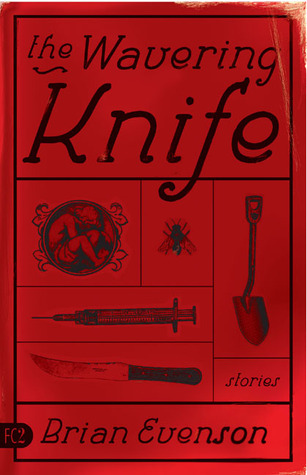
Q: Your work has previously been compared to the likes of Poe and Kafka, do you see yourself as following in the trajectory of gothic fiction and, if so, do you have any allegiances to a particular strand of the gothic genre, or are your thematic and stylistic concerns influenced by other literary traditions?
A: I do see myself as tied to the gothic, and early on thought of myself as being part of a kind of New Gothic school—there was an issue of Conjunctionsmagazine called “The New Gothic” that made me think there might be a place for me in the literary world after all. I tend to read pretty widely and eccentrically, and I think that a lot of different strands end up coming together in my stories, so probably the experience of reading them differs depending on what traditions you’re most steeped in. So, for instance, in a story like “The Second Boy” I’m playing with campfire stories and ghost stories, sometimes particular ghost stories, and stories about doubles, sometimes particular double stories, but also carrying on a conversation with Isak Dinesen and Roberto Bolaño. And since what I allude to in Bolaño is actually a conversation he’s having with another writer there’s a further level of complication if you know Bolaño and his influences well. And if you know the Dinesen story I’m dealing with, you’ll see how I’m turning it against itself. You don’t have to know any of that to enjoy the story, but what you do know and sense and feel will inflect your experience significantly.
Q: Whatever genre banner your stories fall under there seems to be a prevailing preoccupation with interior psychological landscapes and the relationship between perceived realities and ‘other’ possible states of existence. Does this concern stem from a personal sort of existential questioning and/or is it more of a literary technique that you employ to add to the depth of the story?
A: It stems very directly from concerns of my own. That questioning of reality is tied to my own fears and doubts and suspicions, and I think that’s what makes it work in the stories: if it’s unsettling for readers it’s at least in part because it’s unsettling for me.
Q: When you write a story, what is your process? For example, do you outline or jump right in? How many edits do you usually make when writing short fiction and do you use a similar process when writing longer works?
A: I’ve done different things depending on the story and on where I’ve been in my career. I used to jump in and just write the story straight through, but as soon as I began writing stories that were longer than a thousand words or so that became difficult. I almost never outline a story, but I do jot notes as I go, and if I stop for an hour or for the night I often will write a few lines about where I intend to go. If I’m working on a longer work, I do sometimes outline, but the outline can change quite a bit by the end. With novels I’ve done both, but find it much more productive to outline—it allows me to write much quicker and keeps me from wasting a lot of time in dead ends. In terms of edits, I tend to try in my first draft to establish a structure, but then will edit a piece anywhere from 3-4 times to a dozen times after that. Usually the structure stays relatively the same, but parts will shrink or expand and individual wording really gets honed and perfected in the later drafts in particular.
Q: When you write a story from a particular philosophical slant do you try to align it with universal human principles (common to the majority of your readers) in order to solicit a certain type of response? I.e. Do you measure your own intent with an understanding of your reader/s and how they might perceive your work?
A: I do think about the reader and how they might perceive the work, but I write in a way that has enough openness in it that I think different people can have slightly different experiences with my work. I like that about it. But I do hope that the majority of people have the kind of experience that makes them continue to think about the story after they put the book down.
Q: Finally, thank you for agreeing to be interviewed. Are you working on any new projects that you can share details of?
A: You’re welcome. I have a new novella, The Warren, coming out in a few weeks. Other than that, I’ve been working on stories and am on the way to a new collection (probably still a year away at least from having something finished). I also have some ideas for a novel, and am just getting going with that.
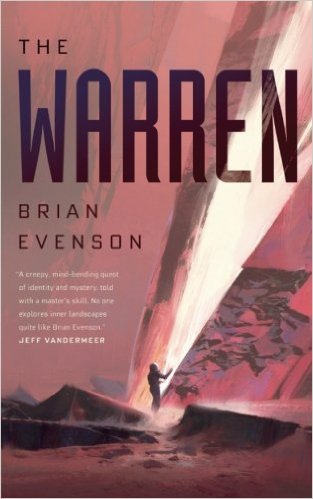
Please make sure you check out Brian’s website and Amazon author page (links below) for more information about his available titles.Brian Evenson's Website: http://www.brianevenson.com\ Amazon Author Page: http://tinyurl.com/BrianEvensonAmazon
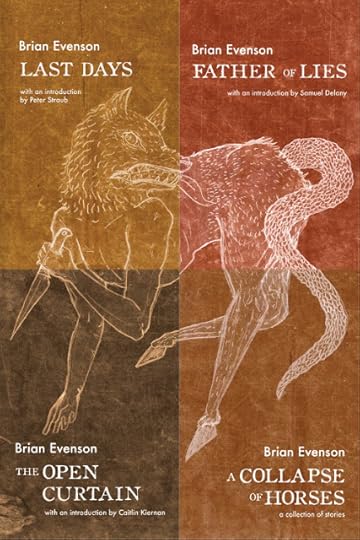
If you haven't already, please take a moment to subscribe to this website (here is the link: free instant book download for all new subscribers) so that you can catch all the latest news and interviews. Next interviewee is with Mort Castle, in case you've been living under a rock, he is a brilliant author and a massive figure in the Horror world. Until next time - stay tuned, thanks for reading and please share this post with your pals.
Brian Evenson, A Collapse of Horses, The Warren, Gothic Literature, Author Interview, Interview, Horror, Surrealism, Publishing, Writing
Published on September 12, 2016 15:24
September 7, 2016
News and special discounted books promotion
Hi Folks
Firstly, apologies for the lack of posts lately - some of you may know that I recently began my Masters in English Lit. program and it is proving to be the inevitable time-guzzler that I thought it would be! So, less fiction, more academic writing . . . Grrrrrr. Despite the time consuming factor, I am learning a lot as I go and it's valuable information which will hopefully benefit my writing. The topic of my thesis is: American Postmodern Serial Killer Fiction, and I'm analyzing the following select works - Jim Thompson’s The Killer Inside Me, James Ellroy’s Killer on the Road, Brett Easton Ellis’s American Psycho, Poppy Z. Brite’s Exquisite Corpse and Joyce Carol Oates’s Zombie. Here's a slice of the intro - as you will notice, the style is not my usual pared-down prose. Bear in mind that this is the first draft, but you get the idea:
"The vast body of published texts, which constitute the genre of serial killer fiction, reveal common narrative technique and tropes that signal a prevalence of clichéd formulaic novels representing the majority of works within this genre. However, amongst this stylistic and thematic majority, works exist that extend the boundaries of serial killer fiction through the import of different genre concerns and attributes. This thesis considers the impact and importance of these works and how they have influenced the stylistic and thematic direction of the genre as a whole. Focussing on twentieth century American post-war serial killer fiction, this study examines select works to exemplify aspects of the narratives that directly, or indirectly, transform, challenge and critique the genre conventions in which they are written. Of primary concern is the charting of the trajectory of the genre as a postmodern phenomenon, the evolution and expansion of the genre in terms of its popularity with the reading public in line with the growth of media interest in factual representations of serial killers, and the growing interest in the genre and its possibilities by those authors who usually write outside of it."
Right, now my excuse is out of the way we can get down to the good stuff. I have recently discounted a few of my titles so I thought I'd share it with you here before the price goes up again. Here are the bargains:
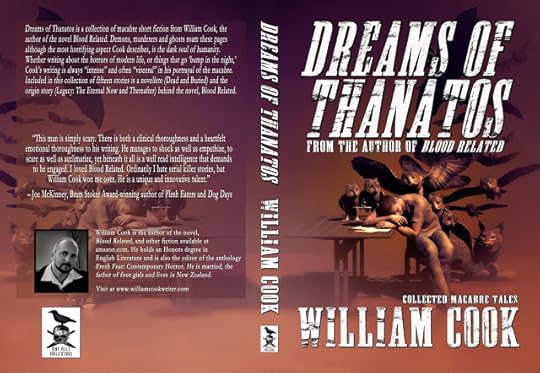
Discounted to only $0.99 for a limited time - grab your copy now! (U.S & U.K. links below) - Dreams of Thanatos: Collected Macabre Tales. (250 pgs)
Supernatural demons, murderers and ghosts roam these pages although the most horrifying aspect Cook describes, is the dark soul of humanity. Whether writing about the psychological horrors of modern life, or things that go ‘bump in the night,’ Cook’s writing is always “intense” and often “visceral” in his portrayal of the macabre. Included in this collection of fifteen stories is a novelette (Dead and Buried) and the origin story (Legacy: The Eternal Now and Thereafter) behind the novel, Blood Related.
Recommended for adult readers only. Contains scenes of psychological and supernatural horror
AMAZON U.K. - http://tinyurl.com/hv2a9t9
AMAZON U.S. - http://tinyurl.com/h97n2ujThis book is also available FREE to all new subscribers of this website - if you are not already subscribed, why not grab a free copy here instead?
The second discounted title is the popular collection I edited, Fresh Fear: An Anthology of Macabre Horror. I have reduced the price and the kindle version is $2.99 for a limited time.
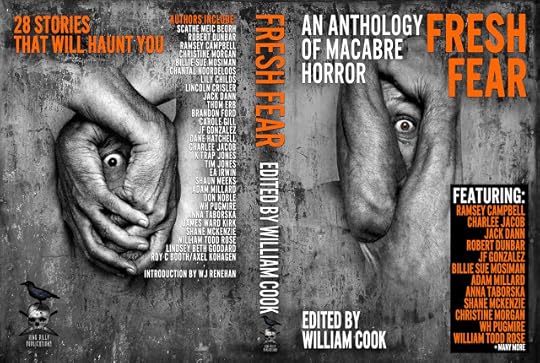
FRESH FEAR: An Anthology of Macabre Horror is a collection of horror from some of the genre's best writers of dark fiction. (Please share this post with your pals)
With over 450 pages, Fresh Fear is packed with stories written by both masters and up-and-coming maestros of the horror genre. Tales steeped in psychological horror sit alongside visions of strange worlds and fantastical landscapes drenched in blood. 'Quiet horror' sits comfortably next to more visceral portrayals of the monsters that lurk deep within the human heart. Sir Arthur Conan Doyle, famously once said, "where there is no imagination there is no horror" - the horror expressed by the authors in Fresh Fear show that imagination is indeed tantamount to excellent story-telling.
AMAZON U.S. - https://www.amazon.com/Fresh-Fear-Anthology-Macabre-Horror-ebook/dp/B01HYASBBI
AMAZON U.K. - https://www.amazon.co.uk/Fresh-Fear-Anthology-Macabre-Horror-ebook/dp/B01HYASBBI
Prepare yourself for 28 tales of fear-inducing horror from some of today's best authors of dark fiction.
Authors/Stories
Scathe meic Beorh – God of the Wind
Robert Dunbar – High Rise
Ramsey Campbell – Welcomeland
Lily Childs – Strange Tastes
Lincoln Crisler – Nouri and the Beetles
Jack Dann – Camps
Thomas Erb – Spencer Weaver Gets Rebooted
Brandon Ford – Scare Me
Carole Gill – Raised
Lindsey Beth Goddard – The Tooth Collector
JF Gonzalez – Love Hurts
Dane Hatchell – ‘takers
Charlee Jacob – Inside the Buzzword Box
K Trap Jones – Demon Eyed Blind
Tim Jones – Protein
James Ward Kirk – Block
Roy C Booth & Axel Kohagen – Just Another Ex
Shane McKenzie – So Much Death
Shaun Meeks – Perfection Through Silence
Adam Millard – The Incongruous Mr Marwick
Christine Morgan – Nails of The Dead
Billie Sue Mosiman – Verboten
Chantal Noordeloos – The Door
Don Noble – Psych
WH Pugmire – Darkness Dancing in Your Eyes
William Todd Rose – The Grave Dancer
EA Irwin – Justice through Twelve Step
Anna Taborska – Out of the Light
*WARNING: R 18+ - Contains graphic scenes of violence and psychological horror. Not suitable for younger readers.
Well that's about all for now but make sure to visit again soon and share this post with your pals. Thanks for reading.
Will
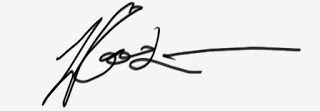
Firstly, apologies for the lack of posts lately - some of you may know that I recently began my Masters in English Lit. program and it is proving to be the inevitable time-guzzler that I thought it would be! So, less fiction, more academic writing . . . Grrrrrr. Despite the time consuming factor, I am learning a lot as I go and it's valuable information which will hopefully benefit my writing. The topic of my thesis is: American Postmodern Serial Killer Fiction, and I'm analyzing the following select works - Jim Thompson’s The Killer Inside Me, James Ellroy’s Killer on the Road, Brett Easton Ellis’s American Psycho, Poppy Z. Brite’s Exquisite Corpse and Joyce Carol Oates’s Zombie. Here's a slice of the intro - as you will notice, the style is not my usual pared-down prose. Bear in mind that this is the first draft, but you get the idea:
"The vast body of published texts, which constitute the genre of serial killer fiction, reveal common narrative technique and tropes that signal a prevalence of clichéd formulaic novels representing the majority of works within this genre. However, amongst this stylistic and thematic majority, works exist that extend the boundaries of serial killer fiction through the import of different genre concerns and attributes. This thesis considers the impact and importance of these works and how they have influenced the stylistic and thematic direction of the genre as a whole. Focussing on twentieth century American post-war serial killer fiction, this study examines select works to exemplify aspects of the narratives that directly, or indirectly, transform, challenge and critique the genre conventions in which they are written. Of primary concern is the charting of the trajectory of the genre as a postmodern phenomenon, the evolution and expansion of the genre in terms of its popularity with the reading public in line with the growth of media interest in factual representations of serial killers, and the growing interest in the genre and its possibilities by those authors who usually write outside of it."
Right, now my excuse is out of the way we can get down to the good stuff. I have recently discounted a few of my titles so I thought I'd share it with you here before the price goes up again. Here are the bargains:

Discounted to only $0.99 for a limited time - grab your copy now! (U.S & U.K. links below) - Dreams of Thanatos: Collected Macabre Tales. (250 pgs)
Supernatural demons, murderers and ghosts roam these pages although the most horrifying aspect Cook describes, is the dark soul of humanity. Whether writing about the psychological horrors of modern life, or things that go ‘bump in the night,’ Cook’s writing is always “intense” and often “visceral” in his portrayal of the macabre. Included in this collection of fifteen stories is a novelette (Dead and Buried) and the origin story (Legacy: The Eternal Now and Thereafter) behind the novel, Blood Related.
Recommended for adult readers only. Contains scenes of psychological and supernatural horror
AMAZON U.K. - http://tinyurl.com/hv2a9t9
AMAZON U.S. - http://tinyurl.com/h97n2ujThis book is also available FREE to all new subscribers of this website - if you are not already subscribed, why not grab a free copy here instead?
The second discounted title is the popular collection I edited, Fresh Fear: An Anthology of Macabre Horror. I have reduced the price and the kindle version is $2.99 for a limited time.

FRESH FEAR: An Anthology of Macabre Horror is a collection of horror from some of the genre's best writers of dark fiction. (Please share this post with your pals)
With over 450 pages, Fresh Fear is packed with stories written by both masters and up-and-coming maestros of the horror genre. Tales steeped in psychological horror sit alongside visions of strange worlds and fantastical landscapes drenched in blood. 'Quiet horror' sits comfortably next to more visceral portrayals of the monsters that lurk deep within the human heart. Sir Arthur Conan Doyle, famously once said, "where there is no imagination there is no horror" - the horror expressed by the authors in Fresh Fear show that imagination is indeed tantamount to excellent story-telling.
AMAZON U.S. - https://www.amazon.com/Fresh-Fear-Anthology-Macabre-Horror-ebook/dp/B01HYASBBI
AMAZON U.K. - https://www.amazon.co.uk/Fresh-Fear-Anthology-Macabre-Horror-ebook/dp/B01HYASBBI
Prepare yourself for 28 tales of fear-inducing horror from some of today's best authors of dark fiction.
Authors/Stories
Scathe meic Beorh – God of the Wind
Robert Dunbar – High Rise
Ramsey Campbell – Welcomeland
Lily Childs – Strange Tastes
Lincoln Crisler – Nouri and the Beetles
Jack Dann – Camps
Thomas Erb – Spencer Weaver Gets Rebooted
Brandon Ford – Scare Me
Carole Gill – Raised
Lindsey Beth Goddard – The Tooth Collector
JF Gonzalez – Love Hurts
Dane Hatchell – ‘takers
Charlee Jacob – Inside the Buzzword Box
K Trap Jones – Demon Eyed Blind
Tim Jones – Protein
James Ward Kirk – Block
Roy C Booth & Axel Kohagen – Just Another Ex
Shane McKenzie – So Much Death
Shaun Meeks – Perfection Through Silence
Adam Millard – The Incongruous Mr Marwick
Christine Morgan – Nails of The Dead
Billie Sue Mosiman – Verboten
Chantal Noordeloos – The Door
Don Noble – Psych
WH Pugmire – Darkness Dancing in Your Eyes
William Todd Rose – The Grave Dancer
EA Irwin – Justice through Twelve Step
Anna Taborska – Out of the Light
*WARNING: R 18+ - Contains graphic scenes of violence and psychological horror. Not suitable for younger readers.
Well that's about all for now but make sure to visit again soon and share this post with your pals. Thanks for reading.
Will

Published on September 07, 2016 18:07
August 23, 2016
Subscribe now and get a free book!
Subscribe now to my website and download a FREE copy of my collection 'Dreams of Thanatos: Collected Macabre Tales' - grab your copy today: http://www.williamcookwriter.com/p/su...


Published on August 23, 2016 17:10
•
Tags:
free-book
July 6, 2016
New Release: Fresh Fear: An Anthology of Macabre Horror - available now!
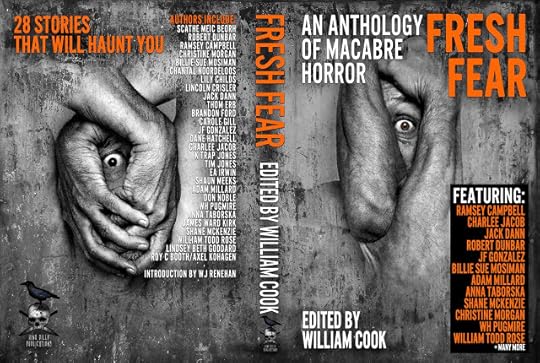
It is with great pleasure that I can finally announce the release of Fresh Fear: An Anthology of Macabre Horror (2nd edition). This new edition has a new lay-out, formatting and a cover featuring the amazing photography of renowned French photographer, Louis Blanc (http://loublancphotos.com/). Formatting and interior work done by the talented Cyrus Wraith Walker from Cyrusfiction Productions.
FRESH FEAR: An Anthology of Macabre Horror* is a collection of horror from some of the genre's best writers of dark fiction. In the introduction, a selection from W.J. Renehan's The Art of Darkness: Meditations on the Effect of Horror Fiction, we are reminded that, "Horror serves to reconnect us with our primal selves, provides temporary respite from the droning conditions of modern life."
With over 450 pages, Fresh Fear is packed with stories written by both masters and up-and-coming maestros of the horror genre. Tales steeped in psychological horror sit alongside visions of strange worlds and fantastical landscapes drenched in blood. 'Quiet horror' sits comfortably next to more visceral portrayals of the monsters that lurk deep within the human heart. Sir Arthur Conan Doyle, famously once said, "where there is no imagination there is no horror" - the horror expressed by the authors in Fresh Fear show that imagination is indeed tantamount to excellent story-telling.
Prepare yourself for 28 tales of fear-inducing horror from some of today's best authors of dark fiction.
Authors/Stories
Scathe meic Beorh – God of the Wind Robert Dunbar – High Rise Ramsey Campbell – Welcomeland Lily Childs – Strange Tastes Lincoln Crisler – Nouri and the Beetles Jack Dann – Camps Thomas Erb – Spencer Weaver Gets Rebooted Brandon Ford – Scare Me Carole Gill – Raised Lindsey Beth Goddard – The Tooth Collector JF Gonzalez – Love Hurts Dane Hatchell – ‘takers Charlee Jacob – Inside the Buzzword Box K Trap Jones – Demon Eyed Blind Tim Jones – Protein James Ward Kirk – Block Roy C Booth & Axel Kohagen – Just Another Ex Shane McKenzie – So Much Death Shaun Meeks – Perfection Through Silence Adam Millard – The Incongruous Mr Marwick Christine Morgan – Nails of The Dead Billie Sue Mosiman – Verboten Chantal Noordeloos – The Door Don Noble – Psych WH Pugmire – Darkness Dancing in Your Eyes William Todd Rose – The Grave Dancer EA Irwin – Justice through Twelve Step Anna Taborska – Out of the Light
*WARNING: R 18+ - Contains graphic scenes of violence and psychological horror. Not suitable for younger readers.
Grab your copy now - you will not be disappointed (please share this post).
purchase at:
AMAZON
kindle and paperback
Published on July 06, 2016 18:13
June 8, 2016
New Zealand Horror Fiction - Does It Exist?
Recently I had the pleasure of talking with fellow New Zealand author, Lee Murray. She asked questions - I responded, oh yes, that's right, it was an interview! And here it is (please make sure to check out Lee's great blog and subscribe). Thanks for reading.
Welcome William! Give us your personal definition of horror. How would you describe it: blood curdling spatter, or through the looking glass, darkly?
I’m not sure my personal definition of horror is different than standard definitions, but here goes: Horror, in its many guises ‒ fiction, cinema, real events ‒ is a highly subjective phenomena directly related to the individual’s own interpretation of things that inspire fear in the imagination. Fear is the greatest component of horror as an experience. The fear of losing one’s life, the fear of someone close to you losing their life, the fear of a threat that borders on the incomprehensible . . . and so on. Horror is an experience that builds in the mind with the enormity of its potential effect on the individual. It is apprehension that builds terror in the imagination, to the point where madness threatens to eclipse the fear with the suffocating and sublime realization that our greatest fear is real and present. The imagination is a huge determining aspect of the scope of the horror experience; and an essential ingredient that must be considered when writing horror or portraying it [horror] cinematically. If the author cannot engage the reader’s imagination, to the point where the reader can visualize and emotionally trigger their own fears in response to what is in front of them, then the author cannot hope to instill fear and thereby ‘horror’ in their writing. As Arthur Conan Doyle suggested: “Where there is no imagination, there is no horror.”
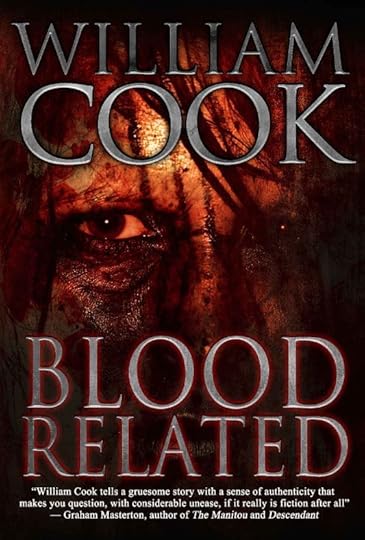
Good, well-crafted, horror must create an emotional response in the reader that both engages and triggers an emotional and intellectual response. It is not enough to bombard the reader with ‘gore for gore’s sake’ or gross depictions of violence without basis or necessity as part of the story – horror, must build to the point where it is inescapable, where the reader has not become desensitized to the point where at the intersection of plot, action and narrative, they feel nothing. It is in the apprehension and the emotional interplay of fear where the best horror lurks. It is a rare skill for an author to be able to build an experience of horror, which gains purchase via the reader’s subjective experience of fear; that triggers a deep intellectual response which, whilst frightening, also provides an element of resolution or satisfaction in the experience.
The confrontational aspect of horror fiction (and film) can either harm or heal depending on how it is done. For example, I distinctly remember, after reading Stephen King’s The Shining, the thrilling but exhaustive feeling that coursed through me as I put the book down for the last time. The story replayed in my mind and my heart beat rapidly as I marveled at the effect that the book had on me. Tied in with my emotional response was a sense of accomplishment: that I had got all the way to the end of this massive book, that I had confronted all the terrible ghosts that haunted the Overlook Hotel, that I had battled the demonic hedge-maze monsters and that I had survived the worst monster of all, the frightening and all-too-human monster, Jack Torrance. It wasn’t a quick read, it didn’t have an abundance of gore and gross-out violence, and the horror experience wasn’t completely realized until the final chapter where it seems as though everything has worked out well for Halloran, Wendy and Danny after the tragic death of Jack and the destruction of the hotel. There is that lingering sense that beneath the surface, beyond the brightness of those who ‘shine on’, the darkness threatens to return.
So, in light of my own personal opinions about horror, you have probably guessed by now that I prefer ‘quiet horror’, the kind that creeps up on you for maximum sublimity. I also like reading more visceral and extreme horror by authors like Edward Lee and Jack Ketchum, but I don’t get the same response to it as I do with more subtle and intricately crafted works like King’s The Shining, Susan Hill’s The Woman in Black, or Ghost Story by Peter Straub.
In many countries, genre fiction is considered the stepchild to mainstream literature, and horror even more so. Do you think this true of New Zealand? [And what can we do?]
Mention NZ Horror and most people would cite Peter Jackson as being its main proponent. Indeed, the history of NZ Horror is evident in a relatively short film history dating back to the late ‘70s, but not so in the history of our literature. Examples of works exhibiting various tropes and themes found in international mainstream horror fiction can be traced back through select works by some of NZ’s leading writers of their day. The likes of past (and present) NZ literary notables: Maurice Gee ( Under the Mountain, and Firestarter), Ronald Hugh Morrieson ( The Scarecrow ), and Katherine Mansfield ( The Daughters of the Late Colonel ). All had elements of the horrific in their work, usually of the quasi-gothic variety with dark and ghostly romanticised scenes. Indeed, many of New Zealand’s leading fiction authors have been noted as having various ‘dark’ themes, a synchronicity shared with our cinematic productions. Much has been made of the Kiwi Gothic, but usually only in reference to film in this country:
Most NZ authors (myself included) of horror, seem to understandably appeal to a greater international audience, rather than a small regional one where the best-seller lists are populated by sports biographies, cooking books and the occasional historical drama. It is almost too hard to break into the restrictive NZ literary market as a horror author, let alone an independent writer of the dark stuff. Any author of dark fiction who seems to be moderately successful, has achieved that success outside of the NZ market. There are a few exceptions, such as the brilliant and dark works of Mike Johnson (Dumb Show, and Travesty), paranormal author Eleanor Gill and the dark fantasy works of Elizabeth Knox, and then there are the crime fiction authors who write gritty thrillers such as Paul Cleave, Ben Sanders and Vanda Symons, but even then these authors mostly achieved their initial successes on international best-seller charts.
The only way works of horror can be accepted as a viable New Zealand genre, is if the reading public accepts them, seeks them out and purchases them on a regular basis through regional distribution channels, which also sell other NZ books. If the reader buys one of these hypothetical books knowingly; that is, knowing that it is a New Zealand horror story, it is advertised as such and appeals because of its genre basis, then we are halfway there. If enough local readers order said NZ horror books, then a channel will be created due to popular demand, but until there is enough of a trend in the fickle NZ book-buying market place, the main route for books of this nature will be either through savvy local suppliers and/or authors who know how to market on a regional level. Unfortunately, as mentioned previously, the market-place is so much bigger internationally that it does not make much financial sense to sell books locally, as so much still needs to be done to create awareness AND demand, for our particular genre. Because these distribution channels are currently so tightly controlled by a select network of suppliers and publishing houses, it is extremely difficult for small players to meet the same demands of a reading public who have settled largely for whatever is placed before them as representative of our literary culture and what is seen to be of the most popular appeal. Read: what will sell the most.
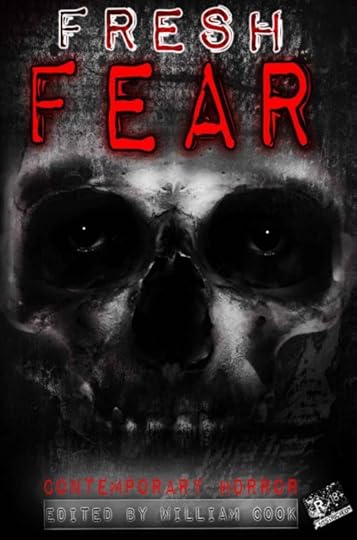
This also implies, that if an author (of horror) is not published by one of the main traditional publishing companies in NZ, then their chance of acceptance by the literary community (including readers) is very slim indeed. The horror genre has always had a certain amount of stigma attached to it anyway, no matter what country it is from. I think a large part of the problem for horror authors trying to get a foothold in the NZ market, is that we are comparatively such a small market-place. The fact that international statistics generally show that the horror genre is near the bottom in terms of sales and readership, also betrays the fact that when you transfer those same stats to the NZ market it is even less. The NZ reading public has a propensity for non-fiction which is our biggest seller according to recent surveys[i]; this fact alone makes the possibility of success, with one of the least popular genre-types, a rare thing indeed and is no surprise to those of us who have tried to get horror works published in this country. Thankfully, there have recently been a few small publishing houses who have started publishing dark fiction here. Independent publishers like Paper Road Press and Steam Press are producing quality horror/dark fantasy titles, but also carry other slip-stream genre titles due to necessity (I presume).
Horror, will probably never be the bread and butter of NZ publishing unless it also serves an international market (especially digitally). Although, in saying that, with an ever-increasing population and small enclaves of writers of dark fiction popping up around the country; potentially, it could be a growth market with the right marketing and distribution network, but in my opinion would need a pioneering publishing company (or author) to take the reins and drive quality works of dark fiction to market in a sustainable and stimulation manner.
What can be done in the future, to open the market-place for NZ authors of dark fiction? Authors need to stand up and take hold of the reins and write distinctly New Zealand horror and not be afraid to be pigeon-holed as horror authors. Perhaps, Elizabeth Knox has been the leading proponent of this attitude – she has written publicly of her love of the horror genre and the influence it has had on her own work. Knox’s novel Wake could be seen as a prime example of what a good NZ horror novel should be:
1.) It is set in New Zealand2.) It is written in a distinctly New Zealand vernacular3.) it is pitched at the New Zealand reading public as a horror novel and,4.) it has been accepted by the New Zealand reading public as a reasonably popular choice at the time of publication.
The New Zealand Listener even noticed this point of difference in Knox’s work, compared to the majority of NZ fiction that is usually classed as literary fiction:
Poetry has always been a means of addressing our personal demons. Does this mean dark poetry is more likely to gain wider readership? What has been your experience with your volume Corpus Delicti?
No, not at all. ANY type of poetry, dark or otherwise, only appeals to a very limited market. Despite dealing with subjects many other poets choose to ignore, dark poetry has a very select readership and in my experience is not widely read, let alone understood. Once again, because the horror genre has such a small slice of genre sales ‒ unless it is rebranded as something else like Stephen King’s works ‒ it stands to reason that dark/horror poetry has an even smaller slice of that same pie. Dark poetry is a great way to confront issues and fears from the writer’s perspective, but depending on the tastes of the reader of verse, the appeal is limited by both the formal aspects of the poetry and the scope of the subject matter and the way it is transcribed. Most people find poetry tough-going at the best of times, especially poetry that doesn’t operate on a simplistic, superficial level. Poetry that deals with difficult themes and is technically adept and intellectually complex, will always only appeal to a select few and usually then, only other poets or academics who do nothing else but study the form and technique of poetry. That is, it seems to ‘take one, to understand one.’ If, for example, you are a poet who does not write in traditional forms and who doesn’t employ conventional rhyme schemes, then your audience will be limited once again, as opposed to the poet who writes ‘sing-song’ verse where everything rhymes to the point where the poem just becomes a cliché or facsimile (style-wise) of gothic poets like Edgar Allen Poe, and reeking of imitation.
Personally speaking, I don’t like contemporary rhyming verse, and almost always prefer a free-verse style that allows the poet to tell a story, as much as describe something in an aesthetic manner. Poetry brought me to short fiction and short fiction to long-form narrative and for that reason I feel it is important for me, as a writer, to continue to practice the craft of poetry to complement my fiction writing skills. To be able to write succinctly and with impact and meaning is a skill I learned from years of writing poetry and I guess without having that vent of creative expression, my personal demons would have existed more off the page than on. So, yes, I have addressed and entertained many personal experiences and imaginations with my poetry but unless a reader identifies with my experience ‒interspersed with literary style, technique and the ‘meaning’ I want to imply and reveal ‒ then it really has no appeal to a wider readership. Many readers weave their own experiences and meaning into the poems and I love that and it is something I aspire to achieve with my poetry: that it will at least invoke a response or provoke the imagination on some level with the reader.
I am currently working on a new collection, titled Beyond the Black Gate which is deliberately written in a confessional style that focuses on a single subject in order to solicit identification with the reader. The collection deals with the topic of depression. The Black Gate is a play on the conventional use of the Black Dog as a metaphorical symbol/mascot for depression. Here is the first poem which is written in a loose traditional form (sonnet) and with a subtle rhyme scheme, but also written in a contemporary manner:
Black Gate Sonnet
This is no ‘Black Dog’; such an animaldoes not exist. This curse names of itselfThe Black Gate – it’s mind is all of its owna sentry of pain guards one’s mental healthpermitting entry to none but the selfonce inside, the gate is closed until death –comes calling, or the night grants some respiteas black mists swallow the heart’s shallow breathand the dark veil envelopes the sick mindshutting out the world’s grim realities,and once again the Black Gate covets time;imprisoned life, jailed so mercilessly.Deep inside, the mind heals slowly until inuredout the Black Gate goes, the self, degrees improved.
There are two main reasons for my use of a semi-traditional style or form in the lead poem. For me, poetry always follows and builds upon tradition and the canon which comes before – mainly because poetry has existed for centuries and most human subjects and experience have been written of previously, by far greater poets than myself. I am a big fan of Shakespeare and Donne’s sonnets and usually model any poems in the sonnet form on a select example by one of these two greats. I do so as a nod to my heroes and also just to leave readers in no doubt, that what they are about to read is poetry and, hopefully, intellectually and aesthetically challenging poetry that will demand they at least know how to read poetry. Once the initial poem is read, then I switch predominantly to the free-verse style I championed above. The stories begin, imbued with all the tropes and technique used in traditional verse forms, but written in a contemporary narrative style. I love using metaphor, simile, analogy, and allegory amongst other poetic devices. I also love cryptography and often hide words and secret anagrams in my verse, in the hope that an astute reader might break the code and reveal another layer of meaning that enlarges the scope of the poem. Sometimes, I also like to subvert the process and add archaic terminology or foreign phrases to reference another (usually classic) poem within the free-verse contemporary form. The collection essentially relays my own experience of depression, with a selection of poetry that deals with the dark side of this disease of the mind and also the light that comes after the darkness has gone. The verse is not horror poetry per se but it deals with fundamental human experiences of dark themes related to the depressive state. Hopefully, it might resonate with someone else who suffers from the same malady and, at the end of the day, it will be a cathartic experience for myself upon completion.
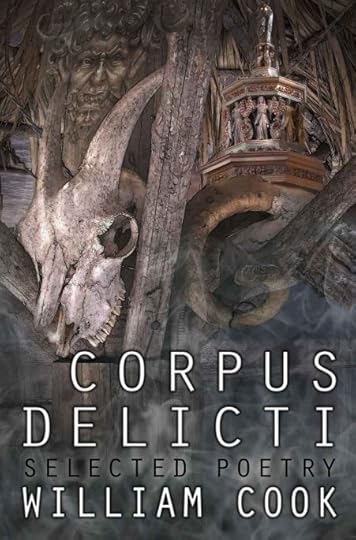
If you were stuck with [insert name of favorite international horror writer] in an elevator, what is the one thing you would hope they would take away about New Zealand horror.
Interesting question. Of course, it would have to be the ‘king of horror’ – Stephen King – trapped in the elevator with me. I would hope to convince him that New Zealand was a highly literate culture, with the gothic underpinnings of a dark and tumultuous colonial and cultural history that readily lent itself to producing fine works of literature that employ the genre tropes and practices of the best horror writers. That we are growing, not just in terms of population but in terms of ideas and the scope of our realization, that we can indeed be top players in an international market place. That we have a distinct voice (when we are not afraid to use it) and that that voice is unique and distinctive and interesting to the rest of the world, if done properly. I would suggest he looks at the landscape and the people in order to understand our literature and to see the dynamic potential of future works of dark fiction, set in such a dramatic and sublime environment.
You’re overnighting in a crypt with only one candle, what book are you reading?
The Collected Works of Edgar Allan Poe.
Can you name some Kiwi horror talent we should have on our radar right now? Anyone coming through the ranks who we should note?
A hard question merely by the fact that my recommendation is only as good as my reading experience. I’m sure that there are NZ authors of horror who I am not aware of and who I have not read and if you are out there, please accept my personal invitation to join my Facebook group: NZ Horror Writers. Okay, well the ones I have read and enjoyed are as follows: Tim Jones (Extreme Weather Events, Landfall and Transported) although he’d probably suggest his work was more speculative fiction than horror. Cat Connor (her Byte series especially), Gary Cross (Borderland), Paul Haines (deceased – The Last Days of Kali Yuga) and Paul Mannering (Tankbread series) to name a few. I’ve also heard that a recently released book called Into the Mist is a terrifying read by a talented New Zealand author, goes by the name Lee Murray – you might’ve heard of her [wink]. Unfortunately, I wish I could give you more names of new talent writing horror in New Zealand but I have yet to read/hear of them.
Aw thank you. [Blushes]. Moves on. You’ve written a book on self-publishing, advising writers about building their platforms. Any special tips for horror writers?
Most of what I have learned about self-publishing, outside of my own experience, has been from my interactions with writers who have successfully achieved best-seller status as independent authors. I’m not sure I can offer any advice for horror writers specifically, but for all indie/self-published authors – having your own website is a no-brainer. Even a blog will do, where you can list your books with live links so that your readers can purchase them and where you can build an email list for future promotions and interactions with your readers. There are a whole bunch of things you can do to promote yourself, but perhaps the best piece of advice I can offer is to find a mentor or role-model. Someone who is where you want to be and who is happy to share advice on how to get there. After interviewing over fifteen successful authors who have been able to maintain financially viable existences as full-time writers, key commonalities stand out.
In the first volume of Secrets of Best-Selling Self-Published Authors I analyzed the interviews and compared answers so that I could summarize the best practices of each and all of the interviewees. My best advice would be to do your homework and take advice from those who have actually achieved best-seller status (if that’s where you want your writing to take you) and, perhaps most importantly, enjoy what you do, don’t give up, and build your passion so that even if you don’t earn the big dollars, you’ll have a damn good time along the way. If you are interested in what the top-dogs have to say about their self-publishing adventures, you can buy a copy of Secrets of Best-Selling Self-Published Authors here. Also, all the interviews are available via my new website where you can also download a cheat-sheet that will help you boost your online presence and sales efforts.
Your worst fear? Is it a feature of any of your own work?
Sharks give me the heebie-jeebies and no, I seem to have avoided them in my work to date.
Work you’re most proud of and why?
I guess Blood Related because I have invested so much time in doing it properly and tweaking it to be the best it can be as my flag-ship publication. I am also really proud of Fresh Fear: Contemporary Horror , which I edited and compiled. It was a real learning curve putting together this anthology and put me in the position of being able to connect and communicate with some great writers that I have looked up to for so long. Authors like Ramsey Campbell, J.F. Gonzalez and Charlee Jacob to name a few. I have just recently received the rights back and will be republishing a new edition with a new cover and new lay-out, so I am looking forward to being able to give it a new lease of life and continue to promote the authors included.
I have read Fresh Fear. That is one scary book! So what’s on your horizon? Any new projects?
Lots of things. I always have at least two projects on the go at any given time. As mentioned, I am working on a new collection of poetry titled Beyond the Black Gate; I am also working on a sequel to Blood Related which is looking on track for a December release all going well. I have a few other projects that will keep me very busy until the end of the year and should be able to maintain a steady publication schedule throughout the remainder of 2016 into 2017. A new collection of short (dark) fiction is nearly complete, as is a collection of miscellaneous multi-genre fiction, tentatively titled ‘Quirks’ – both of which should be published before Christmas. To stay tuned for details, please subscribe to my website. For a limited time I am giving away a free digital edition of my collection, Dreams of Thanatos to new subscribers here. You can also follow me on Amazon to get regular updates whenever I release a new book. Thanks for the great interview, Lee.Thanks for stopping by William!LINKSWebsite: http://williamcookwriter.comAmazon: http://amazon.com/author/william-cookTwitter: http://twitter.com/williamcook666
Paul Cleave, Ben Sanders, Vanda Symons, Elizabeth Knox, Mike Johnson, Eleanor Gill, Paper Road Press, Steam Press, NZ Horror, New Zealand Horror Fiction, New Zealand Horror, Craig Ranapia, Stephen King, Cat Connor, Paul Mannering, Tim Jones, Paul Haines, Gary Cross, Lee Murray, Ramsey Campbell, Charlee Jacob, J.F. Gonzalez
Welcome William! Give us your personal definition of horror. How would you describe it: blood curdling spatter, or through the looking glass, darkly?
I’m not sure my personal definition of horror is different than standard definitions, but here goes: Horror, in its many guises ‒ fiction, cinema, real events ‒ is a highly subjective phenomena directly related to the individual’s own interpretation of things that inspire fear in the imagination. Fear is the greatest component of horror as an experience. The fear of losing one’s life, the fear of someone close to you losing their life, the fear of a threat that borders on the incomprehensible . . . and so on. Horror is an experience that builds in the mind with the enormity of its potential effect on the individual. It is apprehension that builds terror in the imagination, to the point where madness threatens to eclipse the fear with the suffocating and sublime realization that our greatest fear is real and present. The imagination is a huge determining aspect of the scope of the horror experience; and an essential ingredient that must be considered when writing horror or portraying it [horror] cinematically. If the author cannot engage the reader’s imagination, to the point where the reader can visualize and emotionally trigger their own fears in response to what is in front of them, then the author cannot hope to instill fear and thereby ‘horror’ in their writing. As Arthur Conan Doyle suggested: “Where there is no imagination, there is no horror.”

Good, well-crafted, horror must create an emotional response in the reader that both engages and triggers an emotional and intellectual response. It is not enough to bombard the reader with ‘gore for gore’s sake’ or gross depictions of violence without basis or necessity as part of the story – horror, must build to the point where it is inescapable, where the reader has not become desensitized to the point where at the intersection of plot, action and narrative, they feel nothing. It is in the apprehension and the emotional interplay of fear where the best horror lurks. It is a rare skill for an author to be able to build an experience of horror, which gains purchase via the reader’s subjective experience of fear; that triggers a deep intellectual response which, whilst frightening, also provides an element of resolution or satisfaction in the experience.
The confrontational aspect of horror fiction (and film) can either harm or heal depending on how it is done. For example, I distinctly remember, after reading Stephen King’s The Shining, the thrilling but exhaustive feeling that coursed through me as I put the book down for the last time. The story replayed in my mind and my heart beat rapidly as I marveled at the effect that the book had on me. Tied in with my emotional response was a sense of accomplishment: that I had got all the way to the end of this massive book, that I had confronted all the terrible ghosts that haunted the Overlook Hotel, that I had battled the demonic hedge-maze monsters and that I had survived the worst monster of all, the frightening and all-too-human monster, Jack Torrance. It wasn’t a quick read, it didn’t have an abundance of gore and gross-out violence, and the horror experience wasn’t completely realized until the final chapter where it seems as though everything has worked out well for Halloran, Wendy and Danny after the tragic death of Jack and the destruction of the hotel. There is that lingering sense that beneath the surface, beyond the brightness of those who ‘shine on’, the darkness threatens to return.
So, in light of my own personal opinions about horror, you have probably guessed by now that I prefer ‘quiet horror’, the kind that creeps up on you for maximum sublimity. I also like reading more visceral and extreme horror by authors like Edward Lee and Jack Ketchum, but I don’t get the same response to it as I do with more subtle and intricately crafted works like King’s The Shining, Susan Hill’s The Woman in Black, or Ghost Story by Peter Straub.
In many countries, genre fiction is considered the stepchild to mainstream literature, and horror even more so. Do you think this true of New Zealand? [And what can we do?]
Mention NZ Horror and most people would cite Peter Jackson as being its main proponent. Indeed, the history of NZ Horror is evident in a relatively short film history dating back to the late ‘70s, but not so in the history of our literature. Examples of works exhibiting various tropes and themes found in international mainstream horror fiction can be traced back through select works by some of NZ’s leading writers of their day. The likes of past (and present) NZ literary notables: Maurice Gee ( Under the Mountain, and Firestarter), Ronald Hugh Morrieson ( The Scarecrow ), and Katherine Mansfield ( The Daughters of the Late Colonel ). All had elements of the horrific in their work, usually of the quasi-gothic variety with dark and ghostly romanticised scenes. Indeed, many of New Zealand’s leading fiction authors have been noted as having various ‘dark’ themes, a synchronicity shared with our cinematic productions. Much has been made of the Kiwi Gothic, but usually only in reference to film in this country:
The Kiwi Gothic constructs New Zealand not as a place of some pastoral idyll but rather as an environment where danger and horror lurk everywhere. The Antipodean gothic is generally considered to be an expression of the settler anxiety that derived from the confrontation with a hostile and alien environment, such as the native New Zealand bush. Unlike the European gothic, which often tells ghost stories set in old castles, the Kiwi version of the gothic often deals with alienation, family traumas and uncanny experiences in very familiar places.The concept of Kiwi Gothic in NZ cinema can be quite easily aligned to our fiction. The same characteristics and tropes are readily available in most contemporary NZ fiction. Unfortunately, the best and brightest of New Zealand authors of dark genre fiction have found more success overseas than here in our own country. I don’t even think that the literary elite of this country even consider horror to be a literary genre, let alone a part of the NZ literary canon and in some ways they would be correct. We don’t really have a firm tradition of stereo-typical horror fiction being written in this country (or at least being set here in NZ). I can’t recall ever reading or seeing a book written by a New Zealander about werewolves, zombies or vampires, roaming about our green countryside.
Most NZ authors (myself included) of horror, seem to understandably appeal to a greater international audience, rather than a small regional one where the best-seller lists are populated by sports biographies, cooking books and the occasional historical drama. It is almost too hard to break into the restrictive NZ literary market as a horror author, let alone an independent writer of the dark stuff. Any author of dark fiction who seems to be moderately successful, has achieved that success outside of the NZ market. There are a few exceptions, such as the brilliant and dark works of Mike Johnson (Dumb Show, and Travesty), paranormal author Eleanor Gill and the dark fantasy works of Elizabeth Knox, and then there are the crime fiction authors who write gritty thrillers such as Paul Cleave, Ben Sanders and Vanda Symons, but even then these authors mostly achieved their initial successes on international best-seller charts.
The only way works of horror can be accepted as a viable New Zealand genre, is if the reading public accepts them, seeks them out and purchases them on a regular basis through regional distribution channels, which also sell other NZ books. If the reader buys one of these hypothetical books knowingly; that is, knowing that it is a New Zealand horror story, it is advertised as such and appeals because of its genre basis, then we are halfway there. If enough local readers order said NZ horror books, then a channel will be created due to popular demand, but until there is enough of a trend in the fickle NZ book-buying market place, the main route for books of this nature will be either through savvy local suppliers and/or authors who know how to market on a regional level. Unfortunately, as mentioned previously, the market-place is so much bigger internationally that it does not make much financial sense to sell books locally, as so much still needs to be done to create awareness AND demand, for our particular genre. Because these distribution channels are currently so tightly controlled by a select network of suppliers and publishing houses, it is extremely difficult for small players to meet the same demands of a reading public who have settled largely for whatever is placed before them as representative of our literary culture and what is seen to be of the most popular appeal. Read: what will sell the most.

This also implies, that if an author (of horror) is not published by one of the main traditional publishing companies in NZ, then their chance of acceptance by the literary community (including readers) is very slim indeed. The horror genre has always had a certain amount of stigma attached to it anyway, no matter what country it is from. I think a large part of the problem for horror authors trying to get a foothold in the NZ market, is that we are comparatively such a small market-place. The fact that international statistics generally show that the horror genre is near the bottom in terms of sales and readership, also betrays the fact that when you transfer those same stats to the NZ market it is even less. The NZ reading public has a propensity for non-fiction which is our biggest seller according to recent surveys[i]; this fact alone makes the possibility of success, with one of the least popular genre-types, a rare thing indeed and is no surprise to those of us who have tried to get horror works published in this country. Thankfully, there have recently been a few small publishing houses who have started publishing dark fiction here. Independent publishers like Paper Road Press and Steam Press are producing quality horror/dark fantasy titles, but also carry other slip-stream genre titles due to necessity (I presume).
Horror, will probably never be the bread and butter of NZ publishing unless it also serves an international market (especially digitally). Although, in saying that, with an ever-increasing population and small enclaves of writers of dark fiction popping up around the country; potentially, it could be a growth market with the right marketing and distribution network, but in my opinion would need a pioneering publishing company (or author) to take the reins and drive quality works of dark fiction to market in a sustainable and stimulation manner.
What can be done in the future, to open the market-place for NZ authors of dark fiction? Authors need to stand up and take hold of the reins and write distinctly New Zealand horror and not be afraid to be pigeon-holed as horror authors. Perhaps, Elizabeth Knox has been the leading proponent of this attitude – she has written publicly of her love of the horror genre and the influence it has had on her own work. Knox’s novel Wake could be seen as a prime example of what a good NZ horror novel should be:
1.) It is set in New Zealand2.) It is written in a distinctly New Zealand vernacular3.) it is pitched at the New Zealand reading public as a horror novel and,4.) it has been accepted by the New Zealand reading public as a reasonably popular choice at the time of publication.
The New Zealand Listener even noticed this point of difference in Knox’s work, compared to the majority of NZ fiction that is usually classed as literary fiction:
Elizabeth Knox has long shown a studied indifference to those readers (and critics) who demand a strict separation between genre and literary fiction, to the benefit of both.The same critic, Craig Ranapia, goes on to astutely point out that:
Horror fiction – and that’s what Wake splendidly is – will always be the red-haired stepchild of that already disreputable literary clan, genre fiction. How could it be otherwise? No matter how popular horror fiction is, those who trade in knowing what we most deeply fear, and why, are never entirely welcome guests.And it is perhaps in this last statement that the answer to Lee’s question lies; like an undead zombie caught in a perpetual state of ‘dead-alive,’ the horror genre (New Zealand or otherwise), is always attempting to rise above the hubris that keeps it buried on the literary outskirts of acceptable mainstream popular fiction.
Poetry has always been a means of addressing our personal demons. Does this mean dark poetry is more likely to gain wider readership? What has been your experience with your volume Corpus Delicti?
No, not at all. ANY type of poetry, dark or otherwise, only appeals to a very limited market. Despite dealing with subjects many other poets choose to ignore, dark poetry has a very select readership and in my experience is not widely read, let alone understood. Once again, because the horror genre has such a small slice of genre sales ‒ unless it is rebranded as something else like Stephen King’s works ‒ it stands to reason that dark/horror poetry has an even smaller slice of that same pie. Dark poetry is a great way to confront issues and fears from the writer’s perspective, but depending on the tastes of the reader of verse, the appeal is limited by both the formal aspects of the poetry and the scope of the subject matter and the way it is transcribed. Most people find poetry tough-going at the best of times, especially poetry that doesn’t operate on a simplistic, superficial level. Poetry that deals with difficult themes and is technically adept and intellectually complex, will always only appeal to a select few and usually then, only other poets or academics who do nothing else but study the form and technique of poetry. That is, it seems to ‘take one, to understand one.’ If, for example, you are a poet who does not write in traditional forms and who doesn’t employ conventional rhyme schemes, then your audience will be limited once again, as opposed to the poet who writes ‘sing-song’ verse where everything rhymes to the point where the poem just becomes a cliché or facsimile (style-wise) of gothic poets like Edgar Allen Poe, and reeking of imitation.
Personally speaking, I don’t like contemporary rhyming verse, and almost always prefer a free-verse style that allows the poet to tell a story, as much as describe something in an aesthetic manner. Poetry brought me to short fiction and short fiction to long-form narrative and for that reason I feel it is important for me, as a writer, to continue to practice the craft of poetry to complement my fiction writing skills. To be able to write succinctly and with impact and meaning is a skill I learned from years of writing poetry and I guess without having that vent of creative expression, my personal demons would have existed more off the page than on. So, yes, I have addressed and entertained many personal experiences and imaginations with my poetry but unless a reader identifies with my experience ‒interspersed with literary style, technique and the ‘meaning’ I want to imply and reveal ‒ then it really has no appeal to a wider readership. Many readers weave their own experiences and meaning into the poems and I love that and it is something I aspire to achieve with my poetry: that it will at least invoke a response or provoke the imagination on some level with the reader.
I am currently working on a new collection, titled Beyond the Black Gate which is deliberately written in a confessional style that focuses on a single subject in order to solicit identification with the reader. The collection deals with the topic of depression. The Black Gate is a play on the conventional use of the Black Dog as a metaphorical symbol/mascot for depression. Here is the first poem which is written in a loose traditional form (sonnet) and with a subtle rhyme scheme, but also written in a contemporary manner:
Black Gate Sonnet
This is no ‘Black Dog’; such an animaldoes not exist. This curse names of itselfThe Black Gate – it’s mind is all of its owna sentry of pain guards one’s mental healthpermitting entry to none but the selfonce inside, the gate is closed until death –comes calling, or the night grants some respiteas black mists swallow the heart’s shallow breathand the dark veil envelopes the sick mindshutting out the world’s grim realities,and once again the Black Gate covets time;imprisoned life, jailed so mercilessly.Deep inside, the mind heals slowly until inuredout the Black Gate goes, the self, degrees improved.
There are two main reasons for my use of a semi-traditional style or form in the lead poem. For me, poetry always follows and builds upon tradition and the canon which comes before – mainly because poetry has existed for centuries and most human subjects and experience have been written of previously, by far greater poets than myself. I am a big fan of Shakespeare and Donne’s sonnets and usually model any poems in the sonnet form on a select example by one of these two greats. I do so as a nod to my heroes and also just to leave readers in no doubt, that what they are about to read is poetry and, hopefully, intellectually and aesthetically challenging poetry that will demand they at least know how to read poetry. Once the initial poem is read, then I switch predominantly to the free-verse style I championed above. The stories begin, imbued with all the tropes and technique used in traditional verse forms, but written in a contemporary narrative style. I love using metaphor, simile, analogy, and allegory amongst other poetic devices. I also love cryptography and often hide words and secret anagrams in my verse, in the hope that an astute reader might break the code and reveal another layer of meaning that enlarges the scope of the poem. Sometimes, I also like to subvert the process and add archaic terminology or foreign phrases to reference another (usually classic) poem within the free-verse contemporary form. The collection essentially relays my own experience of depression, with a selection of poetry that deals with the dark side of this disease of the mind and also the light that comes after the darkness has gone. The verse is not horror poetry per se but it deals with fundamental human experiences of dark themes related to the depressive state. Hopefully, it might resonate with someone else who suffers from the same malady and, at the end of the day, it will be a cathartic experience for myself upon completion.

If you were stuck with [insert name of favorite international horror writer] in an elevator, what is the one thing you would hope they would take away about New Zealand horror.
Interesting question. Of course, it would have to be the ‘king of horror’ – Stephen King – trapped in the elevator with me. I would hope to convince him that New Zealand was a highly literate culture, with the gothic underpinnings of a dark and tumultuous colonial and cultural history that readily lent itself to producing fine works of literature that employ the genre tropes and practices of the best horror writers. That we are growing, not just in terms of population but in terms of ideas and the scope of our realization, that we can indeed be top players in an international market place. That we have a distinct voice (when we are not afraid to use it) and that that voice is unique and distinctive and interesting to the rest of the world, if done properly. I would suggest he looks at the landscape and the people in order to understand our literature and to see the dynamic potential of future works of dark fiction, set in such a dramatic and sublime environment.
You’re overnighting in a crypt with only one candle, what book are you reading?
The Collected Works of Edgar Allan Poe.
Can you name some Kiwi horror talent we should have on our radar right now? Anyone coming through the ranks who we should note?
A hard question merely by the fact that my recommendation is only as good as my reading experience. I’m sure that there are NZ authors of horror who I am not aware of and who I have not read and if you are out there, please accept my personal invitation to join my Facebook group: NZ Horror Writers. Okay, well the ones I have read and enjoyed are as follows: Tim Jones (Extreme Weather Events, Landfall and Transported) although he’d probably suggest his work was more speculative fiction than horror. Cat Connor (her Byte series especially), Gary Cross (Borderland), Paul Haines (deceased – The Last Days of Kali Yuga) and Paul Mannering (Tankbread series) to name a few. I’ve also heard that a recently released book called Into the Mist is a terrifying read by a talented New Zealand author, goes by the name Lee Murray – you might’ve heard of her [wink]. Unfortunately, I wish I could give you more names of new talent writing horror in New Zealand but I have yet to read/hear of them.
Aw thank you. [Blushes]. Moves on. You’ve written a book on self-publishing, advising writers about building their platforms. Any special tips for horror writers?
Most of what I have learned about self-publishing, outside of my own experience, has been from my interactions with writers who have successfully achieved best-seller status as independent authors. I’m not sure I can offer any advice for horror writers specifically, but for all indie/self-published authors – having your own website is a no-brainer. Even a blog will do, where you can list your books with live links so that your readers can purchase them and where you can build an email list for future promotions and interactions with your readers. There are a whole bunch of things you can do to promote yourself, but perhaps the best piece of advice I can offer is to find a mentor or role-model. Someone who is where you want to be and who is happy to share advice on how to get there. After interviewing over fifteen successful authors who have been able to maintain financially viable existences as full-time writers, key commonalities stand out.
In the first volume of Secrets of Best-Selling Self-Published Authors I analyzed the interviews and compared answers so that I could summarize the best practices of each and all of the interviewees. My best advice would be to do your homework and take advice from those who have actually achieved best-seller status (if that’s where you want your writing to take you) and, perhaps most importantly, enjoy what you do, don’t give up, and build your passion so that even if you don’t earn the big dollars, you’ll have a damn good time along the way. If you are interested in what the top-dogs have to say about their self-publishing adventures, you can buy a copy of Secrets of Best-Selling Self-Published Authors here. Also, all the interviews are available via my new website where you can also download a cheat-sheet that will help you boost your online presence and sales efforts.
Your worst fear? Is it a feature of any of your own work?
Sharks give me the heebie-jeebies and no, I seem to have avoided them in my work to date.
Work you’re most proud of and why?
I guess Blood Related because I have invested so much time in doing it properly and tweaking it to be the best it can be as my flag-ship publication. I am also really proud of Fresh Fear: Contemporary Horror , which I edited and compiled. It was a real learning curve putting together this anthology and put me in the position of being able to connect and communicate with some great writers that I have looked up to for so long. Authors like Ramsey Campbell, J.F. Gonzalez and Charlee Jacob to name a few. I have just recently received the rights back and will be republishing a new edition with a new cover and new lay-out, so I am looking forward to being able to give it a new lease of life and continue to promote the authors included.
I have read Fresh Fear. That is one scary book! So what’s on your horizon? Any new projects?
Lots of things. I always have at least two projects on the go at any given time. As mentioned, I am working on a new collection of poetry titled Beyond the Black Gate; I am also working on a sequel to Blood Related which is looking on track for a December release all going well. I have a few other projects that will keep me very busy until the end of the year and should be able to maintain a steady publication schedule throughout the remainder of 2016 into 2017. A new collection of short (dark) fiction is nearly complete, as is a collection of miscellaneous multi-genre fiction, tentatively titled ‘Quirks’ – both of which should be published before Christmas. To stay tuned for details, please subscribe to my website. For a limited time I am giving away a free digital edition of my collection, Dreams of Thanatos to new subscribers here. You can also follow me on Amazon to get regular updates whenever I release a new book. Thanks for the great interview, Lee.Thanks for stopping by William!LINKSWebsite: http://williamcookwriter.comAmazon: http://amazon.com/author/william-cookTwitter: http://twitter.com/williamcook666
Paul Cleave, Ben Sanders, Vanda Symons, Elizabeth Knox, Mike Johnson, Eleanor Gill, Paper Road Press, Steam Press, NZ Horror, New Zealand Horror Fiction, New Zealand Horror, Craig Ranapia, Stephen King, Cat Connor, Paul Mannering, Tim Jones, Paul Haines, Gary Cross, Lee Murray, Ramsey Campbell, Charlee Jacob, J.F. Gonzalez
Published on June 08, 2016 17:57
May 24, 2016
News and FREE EBOOK giveaways
Hi All - it's been a while I know, so as a way of thanking you for sticking around I've got some free books for you! Things have been really busy lately with research for my Masters thesis well underway. The title of my dissertation is 'The Evolution of a Genre: the Rise and Rise of Serial killer Fiction. As you can imagine, the research and writing on this topic fits well within the scope of my fictional work as well, so it should be an interesting and engaging ride. Let's just hope that my supervisor likes the subject as much as readers of my books do! Other current projects include continued work on the sequel to 'Blood Related' (a novel titled 'Blood Loss'), the second volume of 'Secrets of Best-Selling Self-Published Authors' as well as an omnibus edition that collates both volumes (1 and 2) plus additional material.
In other news, I have recently been interviewed. If you're interested in reading these you can view them respectively, here and here.
The last item I have today is a REQUEST FOR REVIEWS! Sorry for shouting, just wanted to make sure everybody heard (wink, wink). If you have read any of my books, please take a minute to drop a short review on Amazon (author page link) and/or Goodreads. If you'd like to become part of my review team, please send me an email and I'll gift you a review copy of your choice.
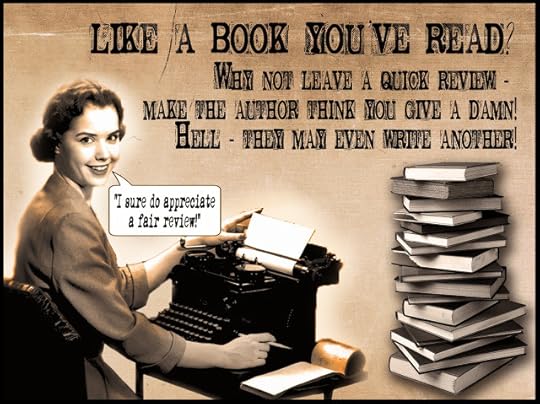
Reviews are what drives new readers to my books and to all the other indie authors out there struggling to make a name for themselves. Believe me when I say that without your help, I am nothing. Sure, I would keep writing nonetheless (without reviews) because it is my passion and I can't seem not to write, but a fair review is what helps me as an author improve and to see what readers actually want to read more of. So thank you to those of you who have read my work and reviewed it and to those of you who will (hopefully) leave a short review after reading this. You rock!!!
Anyway, here they are - today's freebies just for you. Just click on the image or the link beneath to download your free copy/s (U.S. + U.K. Links included)
DEAD AND BURIEDEver been bullied? Ever been dead and buried? Ever been a ghost?
Donny is sick of everything, at home and at school. Most of all, he hates the bullies who have made his life a living hell. Strange things have been happening in the Cox household – Donny’s mother has mysteriously disappeared and his drunken father has been acting more strangely than usual. Donny’s little brother Max is relying on him to find their mother and to protect him from all the things little kids need protecting from. The local gang of thugs is intent on making Donny and Max’s lives as miserable as possible. They will resort to almost anything to make the Cox brothers’ suffer. What the bullies don’t consider, is the possibility that their cruel actions will have consequences far beyond their realms of imagination.
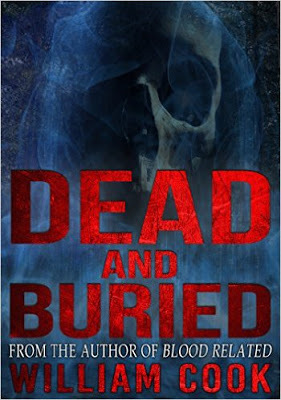
AMAZON U.S.AMAZON U.K.
DEATH QUARTETDEATH QUARTET (A Selection of Short Horror Fiction & Verse) is an eclectic miscellany of psychological horror stories, poems, and ephemera, wherein the subject matter relates to the study of homicide and the aesthetic portrayal of such an act. In other words, themes of death and murder abound in this horrific collection brought to you by William Cook, author of macabre fiction and the novel ‘Blood Related.’
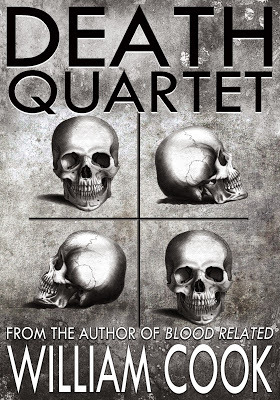
AMAZON U.S.AMAZON U.K.
CREEPBe careful who you get into a car with, even if that car is a taxi!
A dark story of a young girl's date with death. CREEP is a story that will leave you on the edge of your seat until the gripping climax which is unexpected and will leave the reader cheering for more. Serial Killers don't always get away with murder, no matter how hard they try.
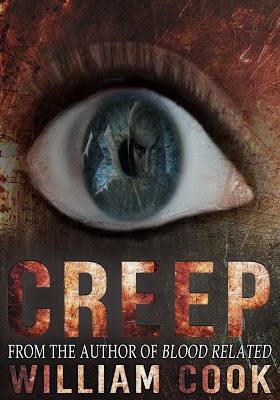
AMAZON U.S.AMAZON U.K.
ONE WAY TICKET Fast Train To Hell . . .
From the belly of the swamp issues forth a visit in the middle of the night, from a force as dark and unimaginable as hell itself. Poor pig-farmer Abel Laroux, must battle the demons of his past as well as the nightmarish reality of the present, as he confronts a devilish visitor who has come to collect on an outstanding debt. Grab your ticket now for this horrifying journey into a hellish nightmare!
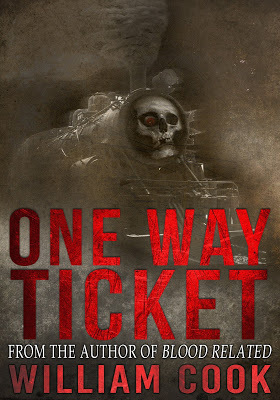
AMAZON U.S.
Hope you enjoy these free reads (download 'em quick - two days to go!). Best wishes and please remember to subscribe (click on image below) for the next post/s and another free book. Have a great day.
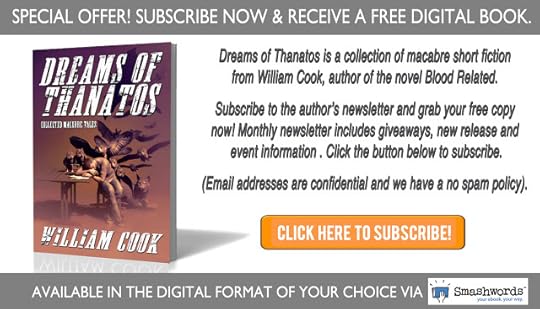 #freebooks, Interview, news, william cook, Dead and Buried, Death Quartet, One Way Ticket, CREEP, Lee Murray, Roadie Notes, Book Review Request, #reviews,
#freebooks, Interview, news, william cook, Dead and Buried, Death Quartet, One Way Ticket, CREEP, Lee Murray, Roadie Notes, Book Review Request, #reviews,
In other news, I have recently been interviewed. If you're interested in reading these you can view them respectively, here and here.
The last item I have today is a REQUEST FOR REVIEWS! Sorry for shouting, just wanted to make sure everybody heard (wink, wink). If you have read any of my books, please take a minute to drop a short review on Amazon (author page link) and/or Goodreads. If you'd like to become part of my review team, please send me an email and I'll gift you a review copy of your choice.

Reviews are what drives new readers to my books and to all the other indie authors out there struggling to make a name for themselves. Believe me when I say that without your help, I am nothing. Sure, I would keep writing nonetheless (without reviews) because it is my passion and I can't seem not to write, but a fair review is what helps me as an author improve and to see what readers actually want to read more of. So thank you to those of you who have read my work and reviewed it and to those of you who will (hopefully) leave a short review after reading this. You rock!!!
Anyway, here they are - today's freebies just for you. Just click on the image or the link beneath to download your free copy/s (U.S. + U.K. Links included)
DEAD AND BURIEDEver been bullied? Ever been dead and buried? Ever been a ghost?
Donny is sick of everything, at home and at school. Most of all, he hates the bullies who have made his life a living hell. Strange things have been happening in the Cox household – Donny’s mother has mysteriously disappeared and his drunken father has been acting more strangely than usual. Donny’s little brother Max is relying on him to find their mother and to protect him from all the things little kids need protecting from. The local gang of thugs is intent on making Donny and Max’s lives as miserable as possible. They will resort to almost anything to make the Cox brothers’ suffer. What the bullies don’t consider, is the possibility that their cruel actions will have consequences far beyond their realms of imagination.

AMAZON U.S.AMAZON U.K.
DEATH QUARTETDEATH QUARTET (A Selection of Short Horror Fiction & Verse) is an eclectic miscellany of psychological horror stories, poems, and ephemera, wherein the subject matter relates to the study of homicide and the aesthetic portrayal of such an act. In other words, themes of death and murder abound in this horrific collection brought to you by William Cook, author of macabre fiction and the novel ‘Blood Related.’

AMAZON U.S.AMAZON U.K.
CREEPBe careful who you get into a car with, even if that car is a taxi!
A dark story of a young girl's date with death. CREEP is a story that will leave you on the edge of your seat until the gripping climax which is unexpected and will leave the reader cheering for more. Serial Killers don't always get away with murder, no matter how hard they try.

AMAZON U.S.AMAZON U.K.
ONE WAY TICKET Fast Train To Hell . . .
From the belly of the swamp issues forth a visit in the middle of the night, from a force as dark and unimaginable as hell itself. Poor pig-farmer Abel Laroux, must battle the demons of his past as well as the nightmarish reality of the present, as he confronts a devilish visitor who has come to collect on an outstanding debt. Grab your ticket now for this horrifying journey into a hellish nightmare!

AMAZON U.S.
Hope you enjoy these free reads (download 'em quick - two days to go!). Best wishes and please remember to subscribe (click on image below) for the next post/s and another free book. Have a great day.
 #freebooks, Interview, news, william cook, Dead and Buried, Death Quartet, One Way Ticket, CREEP, Lee Murray, Roadie Notes, Book Review Request, #reviews,
#freebooks, Interview, news, william cook, Dead and Buried, Death Quartet, One Way Ticket, CREEP, Lee Murray, Roadie Notes, Book Review Request, #reviews,
Published on May 24, 2016 16:30
February 21, 2016
RECOMMENDED TOP TEN MOTIVATIONAL BOOKS - WILLIAM COOK
Over the course of my reading years, several non-fiction books have stood out for me that I have referred to time and time again. Whenever I get the ‘blues’ or need some motivation with my writing or my business projects these are the books that give me the juice I need to create and persevere. I love reading and I love the ‘idea’ of books – the idea that this one thing can impart so much knowledge, information, advice and pleasure, is what keeps me writing in the hope that I too, one day, will create a book that people might want to read more than once. I get a real thrill that something in a book I wrote ‘spoke’ to the reader and helped them through a rough patch, or at least gave them a smile or an idea that helped them get through their day. This is what drives me forward to create books for my readers – that they may entertain, impart a bit of information or wisdom that might benefit them, and that one of my books will give someone, somewhere, the right words to make their day just that little bit better or more interesting. I started my writing career with poetry and this really set me up for writing prose in a way – the understanding of condensing both meaning and eclectic word choices into the best possible economic sentence/line structure, has served me well in both my fiction and non-fiction works. Hell, I think it has even give me a slight edge with my Twitter posts! Writing big things with only 140 characters at your disposal is definitely an acquired skill, when I get stuck a bit of poetry never goes amiss. It is my view that poets make the best Tweeters (tongue in cheek).
Anyway, back to the books – I’m sure you have your own ‘go to’ reference library, you may even have some of these books in your own top-ten list. I hope you enjoy these recommendations and I’m quite sure that if you haven’t read any of these that you would only be adding to (as opposed to detracting from) your life by reading them. Please make sure to add your own top ten motivational/inspirational books in the comments below and to share this with your friends and networks. Happy reading and stay tuned for the next list which will be my recommendations for the ‘Top Ten Indie Non-Fiction Entrepreneurial Books.’ If you would like to be notified when the next post is published, please subscribe now to my website (I’ll even throw in a free copy of my collected short fiction for you as a thank you) http://tinyurl.com/subscribe-freebook
Best wishes
William Cook
The Wisdom of Insecurity by Alan Watts
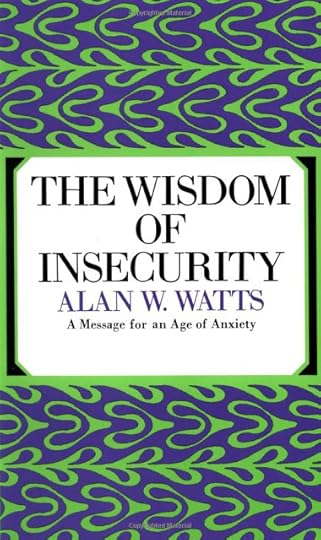 In this fascinating book, Alan Watts explores man's quest for psychological security, examining our efforts to find spiritual and intellectual certainty in the realms of religion and philosophy. The Wisdom of Insecurity underlines the importance of our search for stability in an age where human life seems particularly vulnerable and uncertain. Watts argues our insecurity is the consequence of trying to be secure and that, ironically, salvation and sanity lie in the recognition that we have no way of saving ourselves.
In this fascinating book, Alan Watts explores man's quest for psychological security, examining our efforts to find spiritual and intellectual certainty in the realms of religion and philosophy. The Wisdom of Insecurity underlines the importance of our search for stability in an age where human life seems particularly vulnerable and uncertain. Watts argues our insecurity is the consequence of trying to be secure and that, ironically, salvation and sanity lie in the recognition that we have no way of saving ourselves. A fantastic book that addresses modernity’s woes with sound logic and reasoning while emphasizing the positives of encouraging ‘spirituality’ into everyday life. This book made things in my mind go ‘click.’ The ideas and succinct philosophy are essential reading for anyone interested in a way forward for humanity – the blueprint is written here, but unfortunately – the people that need to read this book will more-than-likely never pick it up. If you have questions about life and spirituality and the ‘meaning’ of things, I highly recommend that you read this book and share it with someone you love.
The Outsider by Colin Wilson
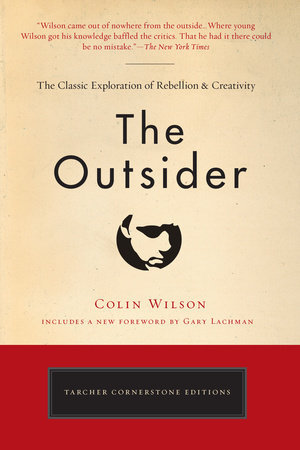
As relevant today as when it originally published, THE OUTSIDER explores the mindset of characters who exist on the margins, and the artists who take them there. Published to immense acclaim, THE OUTSIDER helped to make popular the literary concept of existentialism. Authors like Sartre, Kafka, Hemingway, and Dostoyevsky, as well as artists like Van Gogh and Nijinsky delved for a deeper understanding of the human condition in their work, and Colin Wilson’s landmark book encapsulated a character found time and time again: the outsider.
How does the Outsider influence society? And how does society influence the Outsider? It’s a question as relevant to today’s iconic characters (from Don Draper to Voldemort) as it was when initially published. Wilson’s seminal work is a must-have for those who love books and are fascinated by that most difficult to understand of characters.
This book blew my mind when I read it. Wilson nails the intersection of art, life and philosophy and puts forward his reasoned argument that highly creative individuals bordering on genius (writers, painters, philosophers, leaders etc.) are plagued with self-doubt and existential angst and that this is what drives them on to confront deep and sometimes terrible issues that the rest of us would rather ignore. And it is through this courageous confrontation of the dark side of life that beauty and meaning are discovered. As a lover of books that confront difficult issues and tough conceptual theories and ideas, this book is a fantastic ‘must read’ that answered so many of my own questions about life and art. Highly recommended – ‘Beyond the Outsider’ is also worth reading as a follow-up to this book.
On Writing: A Memoir of the Craft by Stephen King
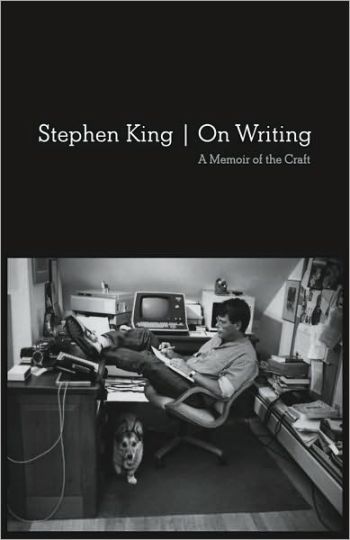
"Long live the King” hailed Entertainment Weekly upon publication of Stephen King’s On Writing: A Memoir of the craft. Part memoir, part master class by one of the bestselling authors of all time, this superb volume is a revealing and practical view of the writer’s craft, comprising the basic tools of the trade every writer must have. King’s advice is grounded in his vivid memories from childhood through his emergence as a writer, from his struggling early career to his widely reported, near-fatal accident in 1999—and how the inextricable link between writing and living spurred his recovery. Brilliantly structured, friendly and inspiring, On Writing will empower and entertain everyone who reads it—fans, writers, and anyone who loves a great story well told.
As an author who first wrote horror stories, this book was/is my bible. The information is entertaining and informative but, most of all, inspirational. King wrote this book while recuperating from a serious injury; for me, what makes this book great is that his determination and humor shine through as he looks back on his life while taking the time to offer advice to aspiring writers. For one of the most popularly successful authors in the world to lay it all on the table with this book is incredibly generous (and clever) – if you are a writer you’d have to be dead inside not to glean at last one or two profoundly insightful pieces of advice or inspiration from On Writing. If you ever wanted to be an author, read this book also – there is no BS, the hard road ahead is expertly mapped out in a way that will have you turning the last pages before you know it. I am up to my tenth reading with this book and it never gets old – always find something inspiring or useful.
Shantaram by Gregory David Roberts
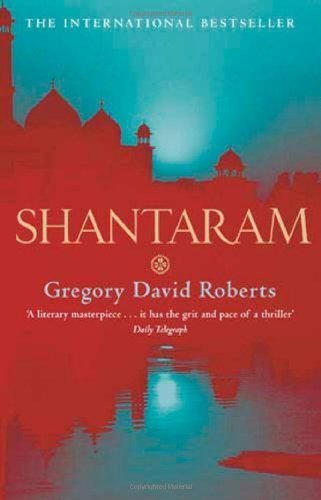
"It took me a long time and most of the world to learn what I know about love and fate and the choices we make, but the heart of it came to me in an instant, while I was chained to a wall and being tortured."
So begins this epic, mesmerizing first novel by Gregory David Roberts, set in the underworld of contemporary Bombay. Shantaram is narrated by Lin, an escaped convict with a false passport who flees maximum security prison in Australia for the teeming streets of a city where he can disappear. Accompanied by his guide and faithful friend, Prabaker, the two enter Bombay's hidden society of beggars and gangsters, prostitutes and holy men, soldiers and actors, and Indians and exiles from other countries, who seek in this remarkable place what they cannot find elsewhere.
As a hunted man without a home, family, or identity, Lin searches for love and meaning while running a clinic in one of the city's poorest slums, and serving his apprenticeship in the dark arts of the Bombay mafia. The search leads him to war, prison torture, murder, and a series of enigmatic and bloody betrayals. The keys to unlock the mysteries and intrigues that bind Lin are held by two people. The first is Khader Khan: mafia godfather, criminal-philosopher-saint, and mentor to Lin in the underworld of the Golden City. The second is Karla: elusive, dangerous, and beautiful, whose passions are driven by secrets that torment her and yet give her a terrible power.
Burning slums and five-star hotels, romantic love and prison agonies, criminal wars and Bollywood films, spiritual gurus and mujahideen guerrillas – this huge novel has the world of human experience in its reach, and a passionate love for India at its heart. Based on the life of the author, it is by any measure the debut of an extraordinary voice in literature.
Fiction or fact, it does not matter, this tome is a masterpiece of prose that will leave most people (with a pulse), breathless. This is truly an epic tale filled with intrigue, adventure and humanity. If it wasn’t so long I would’ve read this in one sitting – it is the kind of book that makes you want to leave your life behind and join the French Foreign Legion or take up base-jumping. It reminds me of James Michener’s ‘Caravans’ mixed with Louis L’Amour’s swash-buckling adventure ‘The Walking Drum,’ placed in a contemporary setting it has a resonance and immediacy that makes it all the more believable and epic as a result. This book encouraged me to be more adventurous – to realize that life does not have to be boring and without excitement and, ultimately, the road to realizing your dreams and achieving something truly worthwhile, is paved with danger and obstacles that might seem insurmountable but are not impossible to overcome.
Man’s Search for Meaning by Viktor Frankl
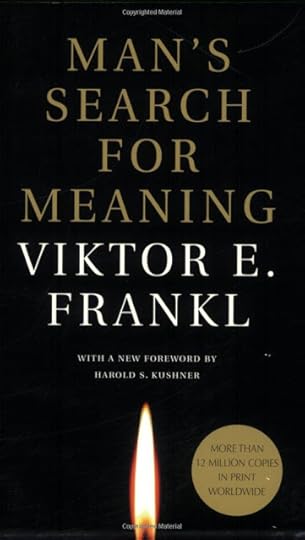
'Man's Search for Meaning’ has riveted generations of readers with its descriptions of life in Nazi death camps and its lessons for spiritual survival. Between 1942 and 1945 psychiatrist Viktor Frankl labored in four different camps, including Auschwitz, while his parents, brother, and pregnant wife perished. Based on his own experience and the stories of his many patients, Frankl argues that we cannot avoid suffering but we can choose how to cope with it, find meaning in it, and move forward with renewed purpose. Frankl's theory—known as logotherapy, from the Greek word logos ("meaning")—holds that our primary drive in life is not pleasure, as Freud maintained, but the discovery and pursuit of what we personally find meaningful. "What man actually needs," Frankl writes, "is not a tensionless state but rather the striving and struggling for a worthwhile goal, a freely chosen task . . . the call of a potential meaning waiting to be fulfilled by him."
In the decades since its first publication in 1959, Man's Search for Meaning has become a classic, with more than twelve million copies in print around the world. A 1991 Library of Congress survey that asked readers to name a "book that made a difference in your life" found Man's Search for Meaning among the ten most influential books in America. At once a memoir, a meditation, a treatise, and a history, it continues to inspire us all to find significance in the very act of living.
This book is one of the most powerfully emotional reading experiences of my life. It is beautifully written and its message is profoundly powerful. Whenever I feel low or like the world has dealt me a bad deal, I pick up this book and I know that life is good. Not because Frankl went through some really horrible and tragic life events and wrote about it really well – but because he experienced these things and he emerged from his tragic experiences with a hope for humanity stronger than ever. His insights into human nature and the struggle between good and evil will leave a deep impression on your heart and mind. Whenever you think you have it tough, or the way ahead is too difficult – pick up this book and read it – it is bound to change your perspective on life for the better.
Worldly Wisdom: Confucian Teachings of the Ming Dynasty by J.C. Cleary

The philosophical, religious, and sociopolitical teachings of Confucianism have played a central role in East Asian culture for many centuries. This book presents a selection of passages from leading Chinese thinkers of the later Ming dynasty (sixteenth-seventeenth centuries), a peak period of Confucian creativity influenced by Buddhism and Taoism. Chosen for their practical interest and universal appeal, the passages are concerned with how to develop the personality, conduct social relations, and order society. In contrast to the common misconception of Confucianism as a formalistic ideology linked to authoritarian political regimes, these passages emphasize the cultivation of spiritual qualities as a means of operating harmoniously and successfully in the world.
This book ‘spoke to me’ – I can’t explain exactly why but this one is my ‘dip’ book. When I need some ideas or some motivation, I ‘dip’ into it and always come up with a new insight or an idea that inspires me. The wisdom provided in mostly short aphorisms, are brimming with logical positivity and a timeless intelligence and humanity that is as important and meaningful now, as it was when these great thinkers first penned their thoughts. 48 Laws of Power by Robert Greene
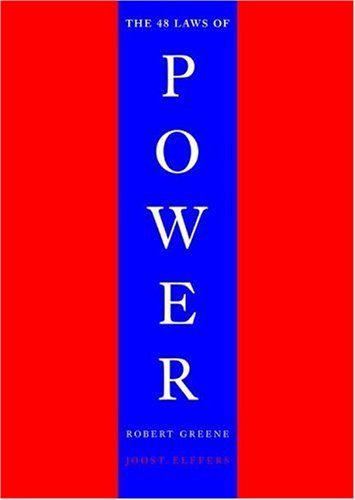
Amoral, cunning, ruthless, and instructive, The 48 Laws of Power is the definitive manual for anyone interested in gaining, observing, or defending against ultimate control. In the book that People magazine proclaimed “beguiling” and “fascinating,” Robert Greene and Joost Elffers have distilled three thousand years of the history of power into 48 essential laws by drawing from the philosophies of Machiavelli, Sun Tzu, and Carl Von Clausewitz and also from the lives of figures ranging from Henry Kissinger to P.T. Barnum.
Some laws teach the need for prudence (“Law 1: Never Outshine the Master”), others teach the value of confidence (“Law 28: Enter Action with Boldness”), and many recommend absolute self-preservation (“Law 15: Crush Your Enemy Totally”). Every law, though, has one thing in common: an interest in total domination. In a bold and arresting two-color package, The 48 Laws of Power is ideal whether your aim is conquest, self-defense, or simply to understand the rules of the game.
Aside from the beautiful aesthetic of this superbly crafted manuscript, when you need a push forward with your business or social life, this book packs a powerful punch. Filled to the brim with an eclectic selection of the best quotes regarding fundamental laws of human nature, it will inspire you to lift your game, step up and stand out from the crowd with assertively positive mantras and knowledge that you can use in everyday situations. If you are in a leadership role or use strategy in your business (or personal) life, this book is perfect for giving you the edge in combative or negotiation techniques. Knowledge is power and this book is full of both. Read it.
The Tao of Jeet Kune Do by Bruce Lee

Compiled from Bruce Lee’s notes and essays and originally published in 1975, Tao of Jeet Kune Do is the [leading] best-selling martial arts book in the world. This iconic work explains the science and philosophy behind jeet kune do—the art Lee invented—and includes hundreds of Lee’s illustrations. Topics include Zen and enlightenment, kicking, striking, grappling, and footwork. With introductions by Linda Lee and Editor Gilbert Johnson, Tao of Jeet Kune Do is essential reading for any practitioner and offers a brief glimpse into the mind of one of the world’s greatest martial artists.
This book is the fight-club of enlightened philosophy. Bruce Lee’s unwavering determination, intelligence, humanity and enlightenment shouts (or should I say, speaks softly with great authority) from these pages. Despite being a manual for his self-defense martial art system, this book is so much more. If you’ve ever felt like giving up or seem to take the wrong route every time, read this book and take time to understand the very simple but highly effective principles he espouses and you are bound to change your perspective on life and how you live it. This book teaches you how to command respect, take control of your life and emotions, and to take the most economical and effective steps forward. Aside from the practical fighting and self-defense applications he teaches, Lee always imbues his thoughts and suggestions with a philosophical twist that is both profound and poetic. A fantastic book the will motivate your mind as well as your body.
Freedom From The Known by J.D. Krishnamurti
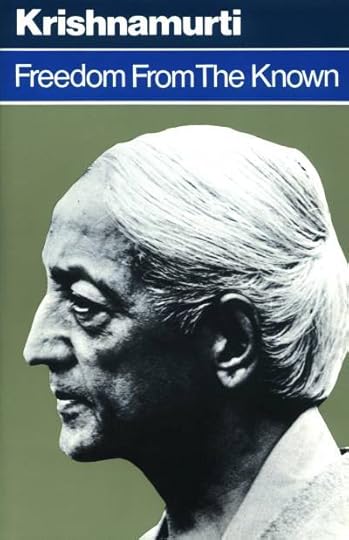
Born in poverty in India, Jiddu Krishnamurti (1895-1986) became a leading spiritual and philosophical thinker whose ideas continue to influence us today. George Bernard Shaw declared that he was the most beautiful human being he had ever seen and Aldous Huxley was one of his close friends. Whether debating politics with Nehru, discussing theories with Rupert Sheldrake and Iris Murdoch, or challenging his students not to take his words at face value, Krishnamurti engaged fully with every aspect of life. He is regarded by many modern religious figures as a great teacher, an extraordinary individual with revolutionary insights; Joseph Campbell, Alan Watts, Eckhart Tolle and Deepak Chopra are all indebted to his writings.
Freedom from the Known is one of Krishnamurti's most accessible works. Here, he reveals how we can free ourselves radically and immediately from the tyranny of the expected. By changing ourselves, we can alter the structure of society and our relationships. The vital need for change and the recognition of its very possibility form an essential part of this important book's message.
This book should be required reading in all schools and for all politicians. It is soaked in a very human message and provides amazingly powerful and simple solutions, for people willing to change their lives for the better and who want to let go of recurring negative thought/life patterns. If you want to truly understand yourself, as an individual and as a human, read this book. It won’t necessarily make you rich or more successful financially, but you would benefit immensely from it as a leader or mentor. Freeing oneself from the social constructs, bad habits, enforced stereotypes and expectations of a lifetime, is a key part of personal growth and original thinking. This book will open your eyes and mind to the possibilities of a ‘new you’ – perhaps it is a very eastern way of thinking (philosophically and socially) which makes it seem like a wholly original and unique concept, but to my western mind it shouted truth and a fresh way of thinking that has me constantly referring back to this book when wanting personal growth and development.
Learned Optimism by Martin Seligman
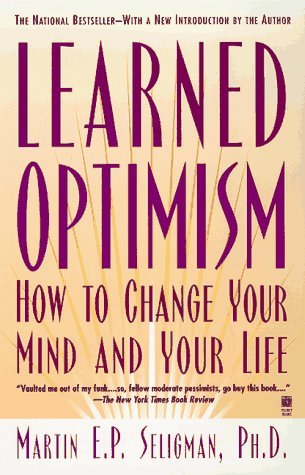
Known as the father of the new science of positive psychology, Martin E.P. Seligman draws on more than twenty years of clinical research to demonstrate how optimism enhances the quality of life, and how anyone can learn to practice it. Offering many simple techniques, Dr. Seligman explains how to break an “I—give-up” habit, develop a more constructive explanatory style for interpreting your behavior, and experience the benefits of a more positive interior dialogue. These skills can help break up depression, boost your immune system, better develop your potential, and make you happier.. With generous additional advice on how to encourage optimistic behavior at school, at work and in children, Learned Optimism is both profound and practical–and valuable for every phase of life.
This book operates on many levels; a discourse on the various negative human traits (emotional, intellectual, psychological, social etc.) and a practical work-book to achieving a more positive outlook in your life and activities. It is a very deep, thorough and insightful work that is well worth the effort to read and take the time to fully grasp the methods and suggestions Seligman offers. If you are like me and one of those people who seem to be born pessimists, this book is for you. The logical reasoning, lack of fluff and use of real-world examples, worked really well to illustrate his theories and to show how the applications discussed in this book can be implemented. It has helped me become a lot more optimistic and to see things in a much more positive light and for that reason alone I list it here as one of the most influential and positive self-development books I’ve read.
Thanks for reading and I hope that by sharing these book recommendations that you find something that will add to your life. Best wishes and please remember to subscribe (click on image below) for the next post/s and your free book. Have a great day.

The Wisdom of Insecurity by Alan Watts, The Outsider by Colin Wilson, On Writing: A Memoir of the Craft by Stephen King, Shantaram by Gregory David Roberts, Man’s Search for Meaning by Viktor Frankl, Worldly Wisdom: Confucian Teachings of the Ming Dynasty by J.C. Cleary, 48 Laws of Power by Robert Greene, The Tao of Jeet Kune Do by Bruce Lee, Freedom From The Known by J.D. Krishnamurti, Learned Optimism by Martin Seligman
Published on February 21, 2016 14:29
December 19, 2015
Discounted holiday price - only $2.99! Secrets of Best-Selling Self-Published Authors
Hi everyone. Firstly, I'd like to wish you all a safe and relaxed holiday season and I hope that 2016 brings good things your way. Secondly, I'd like to share with you my latest publication news; Secrets of Best-Selling Self-Published Authors is at a special discounted low holiday price - only $2.99! Want to know how indie best-sellers become best-sellers? Want to know whether or not self-publishing will work for you? Want straight-to-the-point advice and easy-to-read tips on self-publishing, book marketing and sales? (U.S. & U.K. links below) Grab a copy quick and please share with your pals.
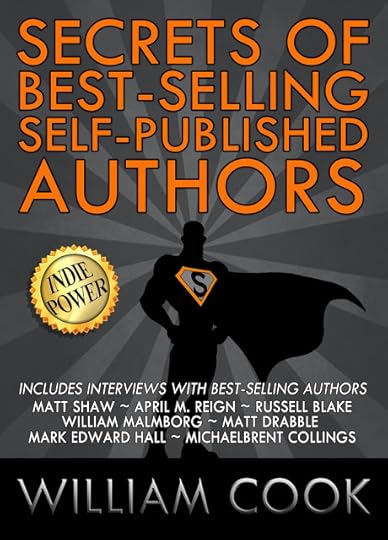 Secrets of Best-Selling Self-Published Authors offers valuable insights and tips for new and experienced self-published authors.
Secrets of Best-Selling Self-Published Authors offers valuable insights and tips for new and experienced self-published authors.
In Secrets of Best-Selling Self-Published Authors, William Cook, author and entrepreneur, shares a selection of interviews from his popular online interview series, alongside an analysis of the interviews and two fresh essays: 'Self Published Author VS Successful Self-Published Author' and 'Growth Hacking for Authors.' Along with the interviews and essays, a very helpful and inspiring list of 'Indie Power Tips' is included. Being a self-published author requires a certain skill set. Being a successful self-published author (SSPA) requires an even greater skill set. Just because you are self-published does not mean you are successful or that you will be a best-seller. Common characteristics of successful self-published authors include personality and character traits that can be seen in most entrepreneurs and successful business people. To be a successful independent author, requires an understanding of the business of publishing and an awareness of the complexities and issues facing authors in this highly competitive and evolving world. In this volume, interviews with best-selling self-published authors: Russell Blake, Matt Shaw, Mark Edward Hall, Michealbrent Collings, William Malmborg, Matt Drabble and April M Reign, offer priceless insights into the world of self-publishing and how they hit the best-seller lists.So what are you waiting for? Get inspired and download your copy today.
Secrets of Best-Selling Self-Published Authors is a book that provides a wealth of tips and information for authors who are traveling the self-publishing route. This book is not a road-map to success by any means, but you will find inspiration and ideas here to push you in the right direction.
#Selfpub #Indie #amwriting #Publishing #Selfpublishing #writing #Growthhack
AMAZON U.S. - http://www.amazon.com/Secrets-Best-Selling-Self-Published-Authors-Indie-ebook/dp/B019GGBBRO/ref=pd_rhf_ee_p_img_1?ie=UTF8&refRID=1VD9HDV2E9BCM4HKHF94
AMAZON U.K. - http://www.amazon.co.uk/Secrets-Best-Selling-Self-Published-Authors-Indie-ebook/dp/B019GGBBRO/ref=sr_1_2?ie=UTF8&qid=1450397415&sr=8-2&keywords=william+cook+secrets Russell Blake, Matt Shaw, Mark Edward Hall, Michealbrent Collings, William Malmborg, Matt Drabble, April M Reign, Indie, Self-Publishing, Authorpreneurship, Writing, Publishing, William Cook, Secrets of Best-Selling Self-Published Authors
 Secrets of Best-Selling Self-Published Authors offers valuable insights and tips for new and experienced self-published authors.
Secrets of Best-Selling Self-Published Authors offers valuable insights and tips for new and experienced self-published authors.In Secrets of Best-Selling Self-Published Authors, William Cook, author and entrepreneur, shares a selection of interviews from his popular online interview series, alongside an analysis of the interviews and two fresh essays: 'Self Published Author VS Successful Self-Published Author' and 'Growth Hacking for Authors.' Along with the interviews and essays, a very helpful and inspiring list of 'Indie Power Tips' is included. Being a self-published author requires a certain skill set. Being a successful self-published author (SSPA) requires an even greater skill set. Just because you are self-published does not mean you are successful or that you will be a best-seller. Common characteristics of successful self-published authors include personality and character traits that can be seen in most entrepreneurs and successful business people. To be a successful independent author, requires an understanding of the business of publishing and an awareness of the complexities and issues facing authors in this highly competitive and evolving world. In this volume, interviews with best-selling self-published authors: Russell Blake, Matt Shaw, Mark Edward Hall, Michealbrent Collings, William Malmborg, Matt Drabble and April M Reign, offer priceless insights into the world of self-publishing and how they hit the best-seller lists.So what are you waiting for? Get inspired and download your copy today.
Secrets of Best-Selling Self-Published Authors is a book that provides a wealth of tips and information for authors who are traveling the self-publishing route. This book is not a road-map to success by any means, but you will find inspiration and ideas here to push you in the right direction.
#Selfpub #Indie #amwriting #Publishing #Selfpublishing #writing #Growthhack
AMAZON U.S. - http://www.amazon.com/Secrets-Best-Selling-Self-Published-Authors-Indie-ebook/dp/B019GGBBRO/ref=pd_rhf_ee_p_img_1?ie=UTF8&refRID=1VD9HDV2E9BCM4HKHF94
AMAZON U.K. - http://www.amazon.co.uk/Secrets-Best-Selling-Self-Published-Authors-Indie-ebook/dp/B019GGBBRO/ref=sr_1_2?ie=UTF8&qid=1450397415&sr=8-2&keywords=william+cook+secrets Russell Blake, Matt Shaw, Mark Edward Hall, Michealbrent Collings, William Malmborg, Matt Drabble, April M Reign, Indie, Self-Publishing, Authorpreneurship, Writing, Publishing, William Cook, Secrets of Best-Selling Self-Published Authors
Published on December 19, 2015 14:22

